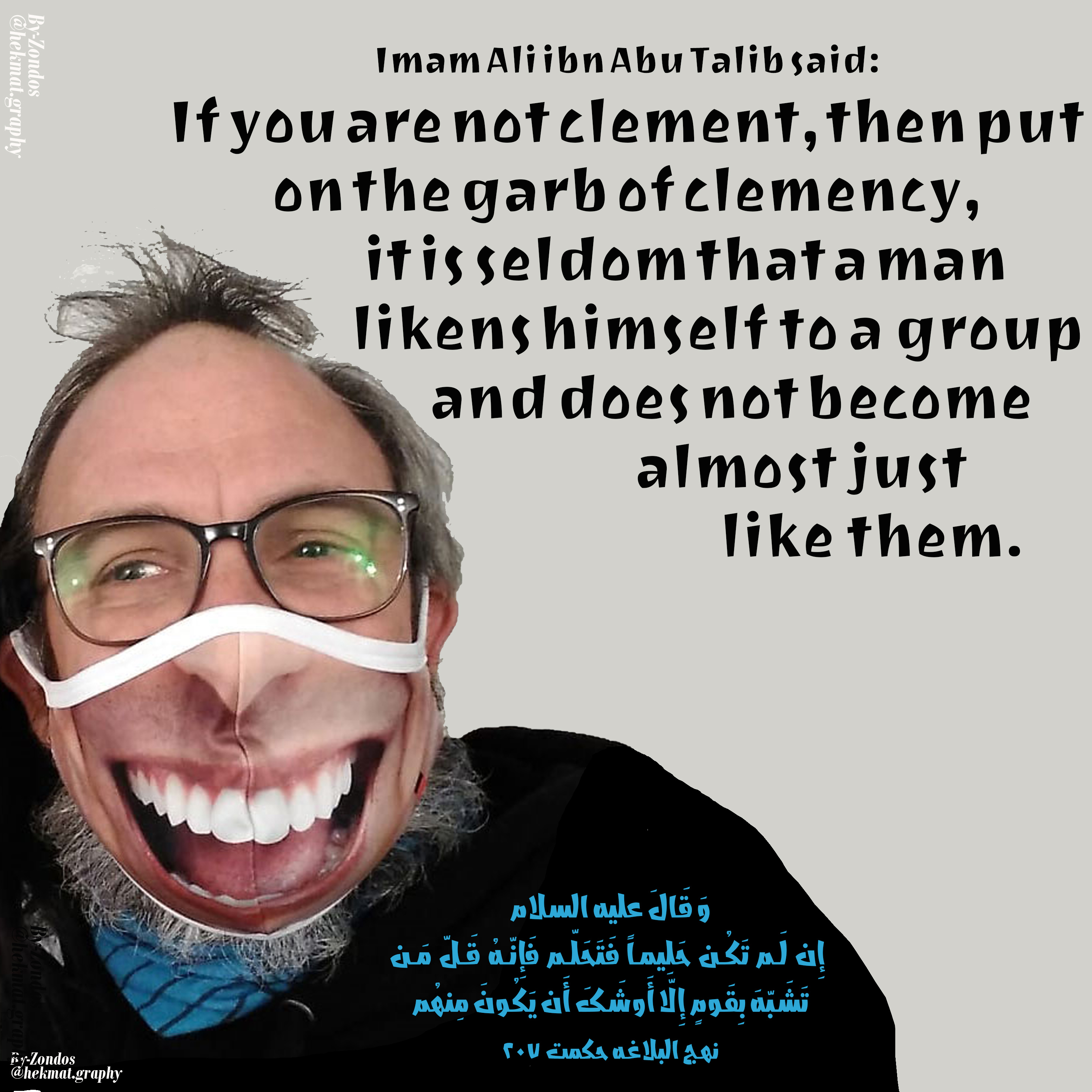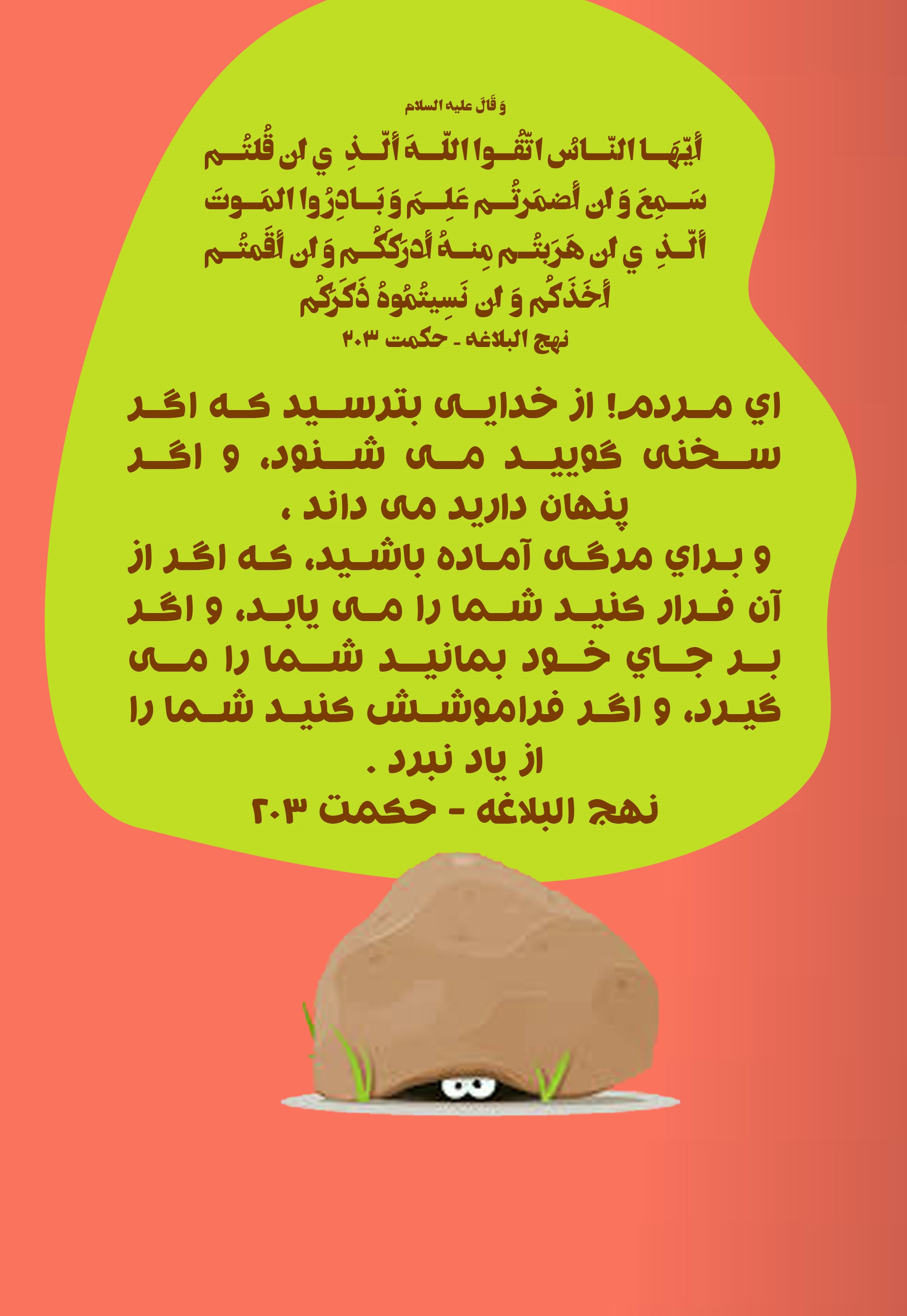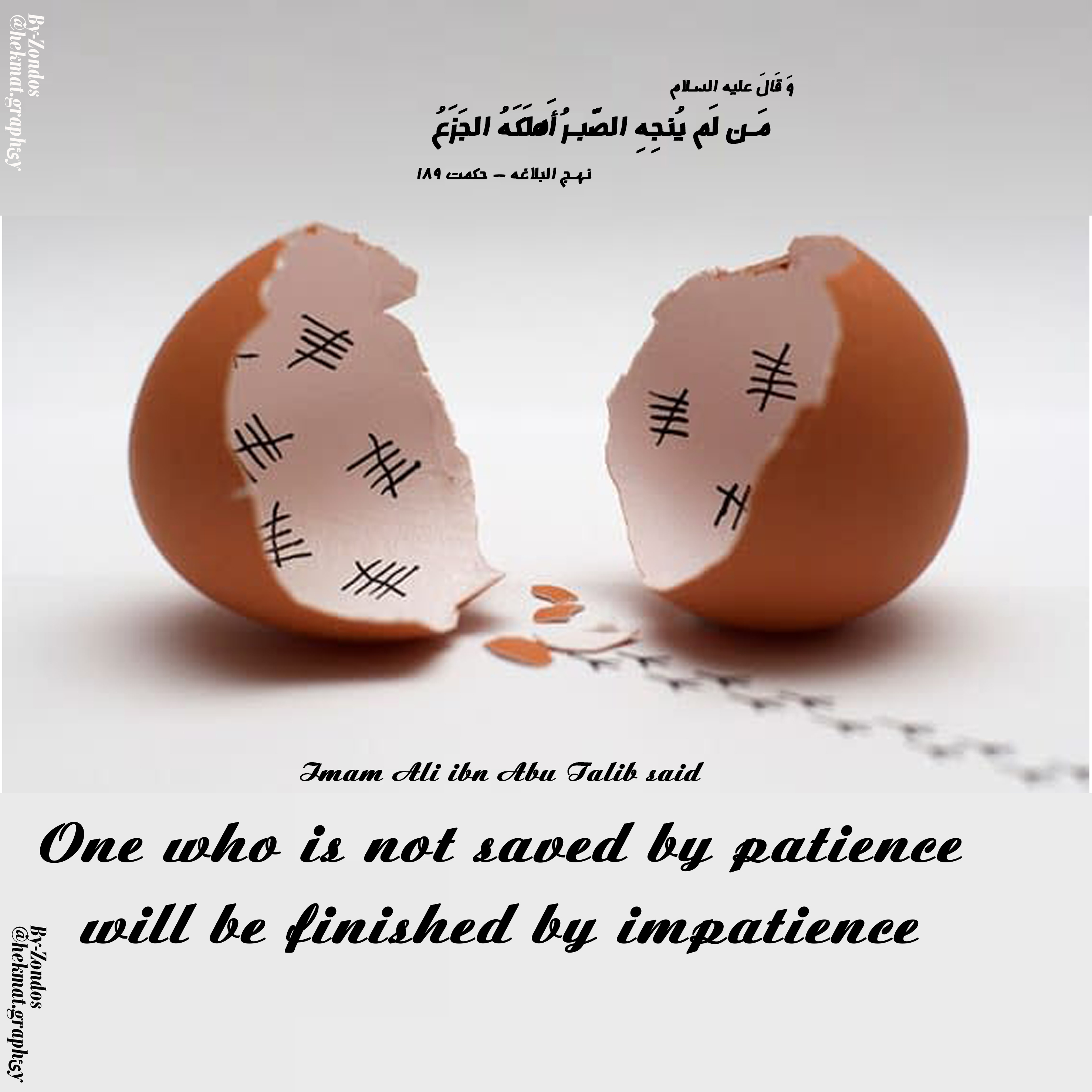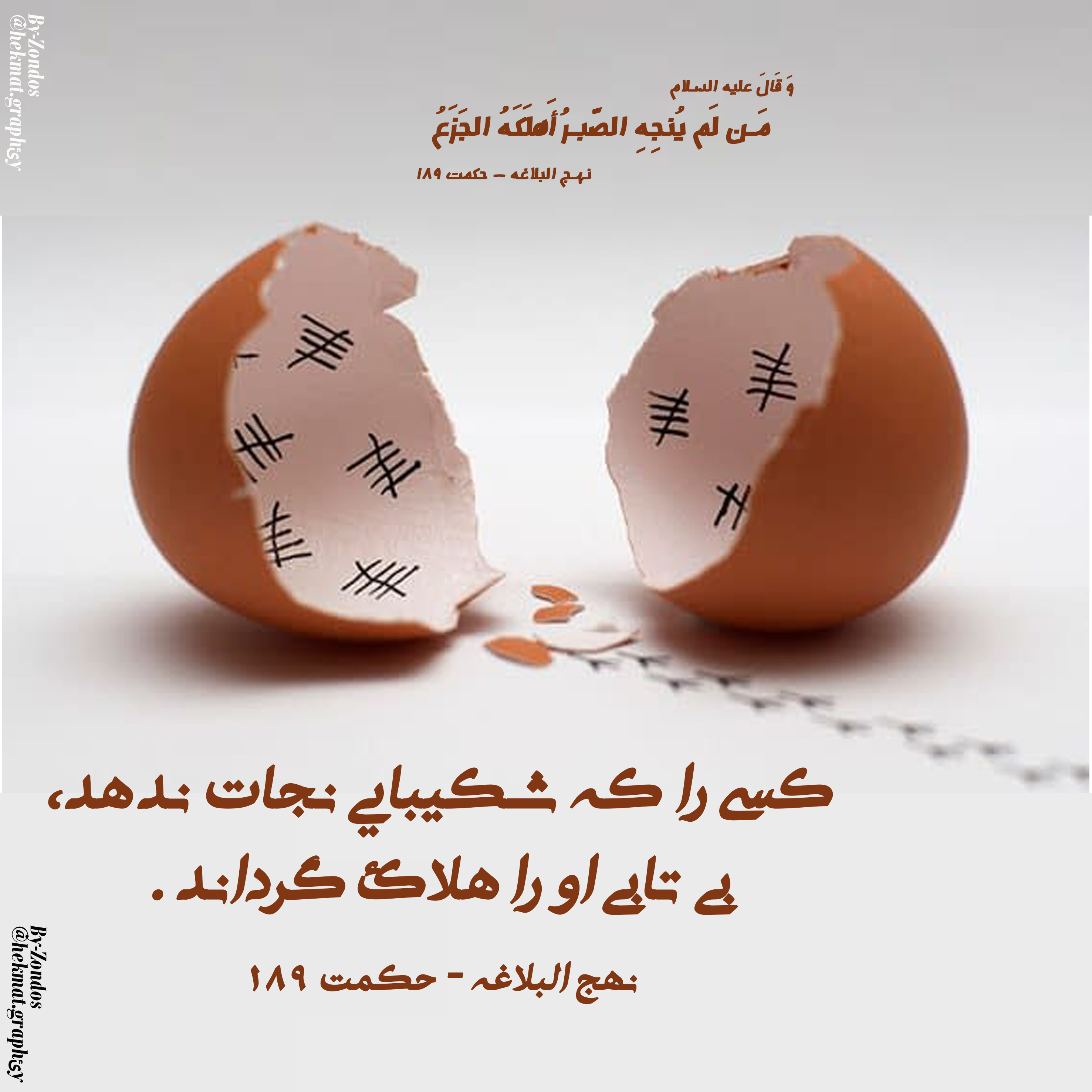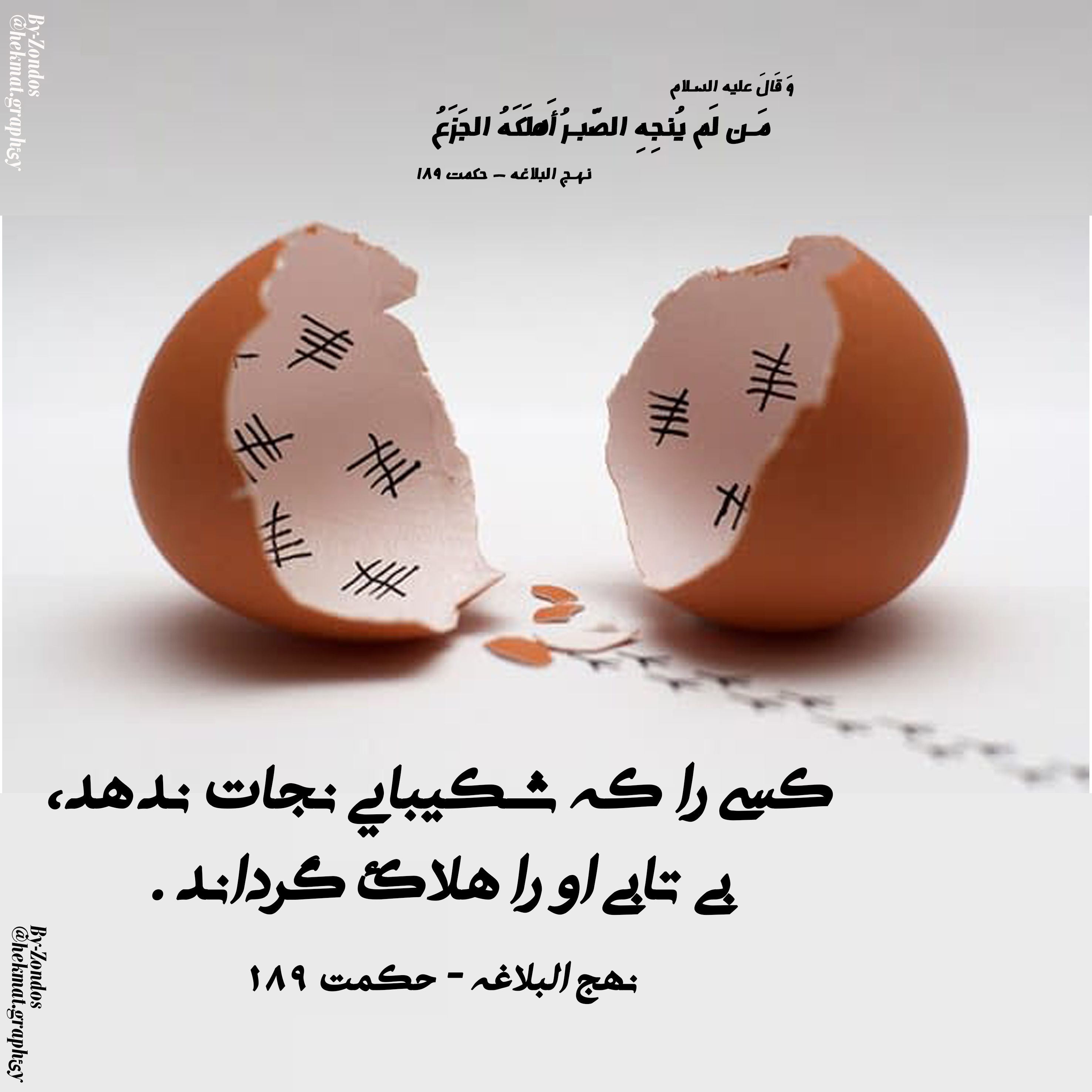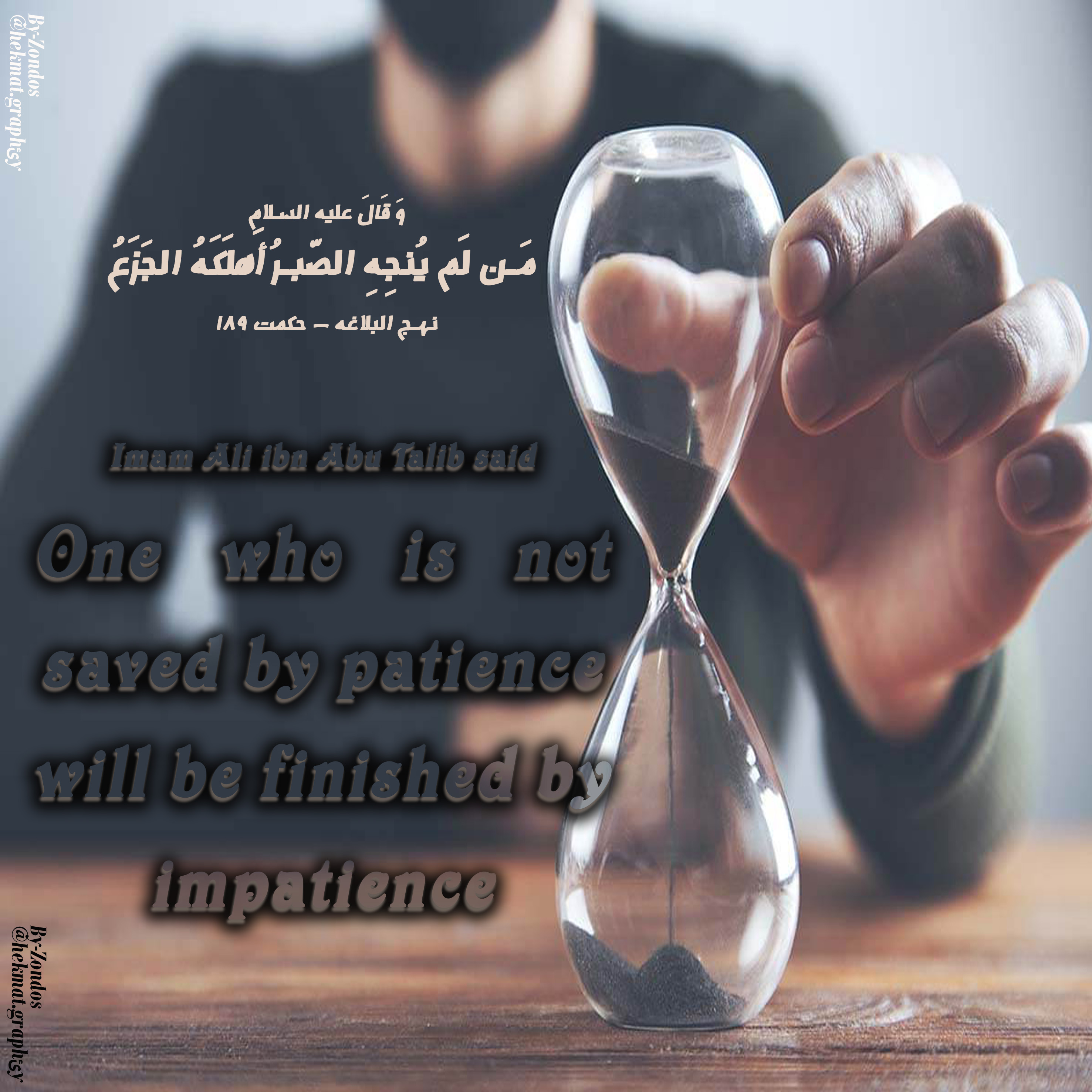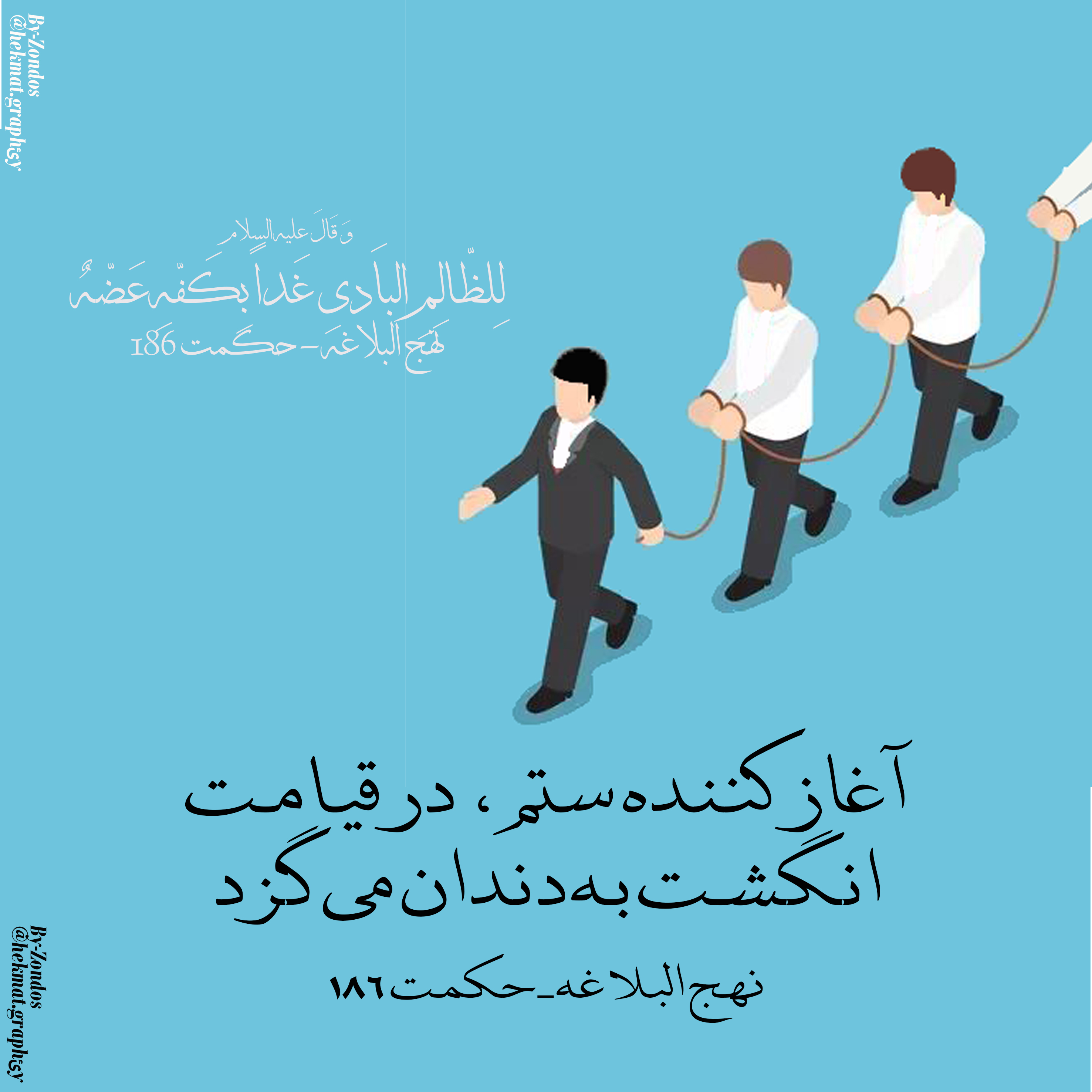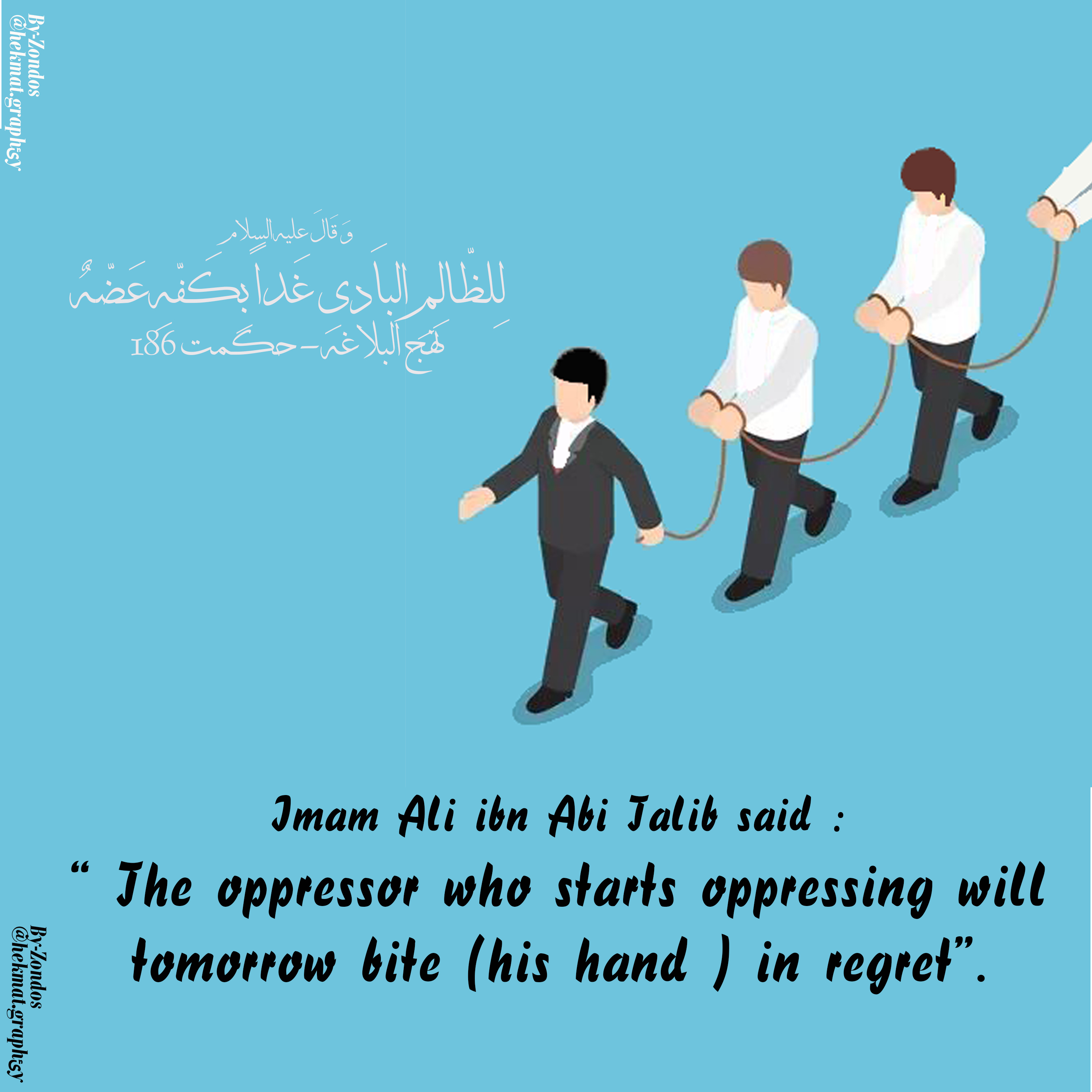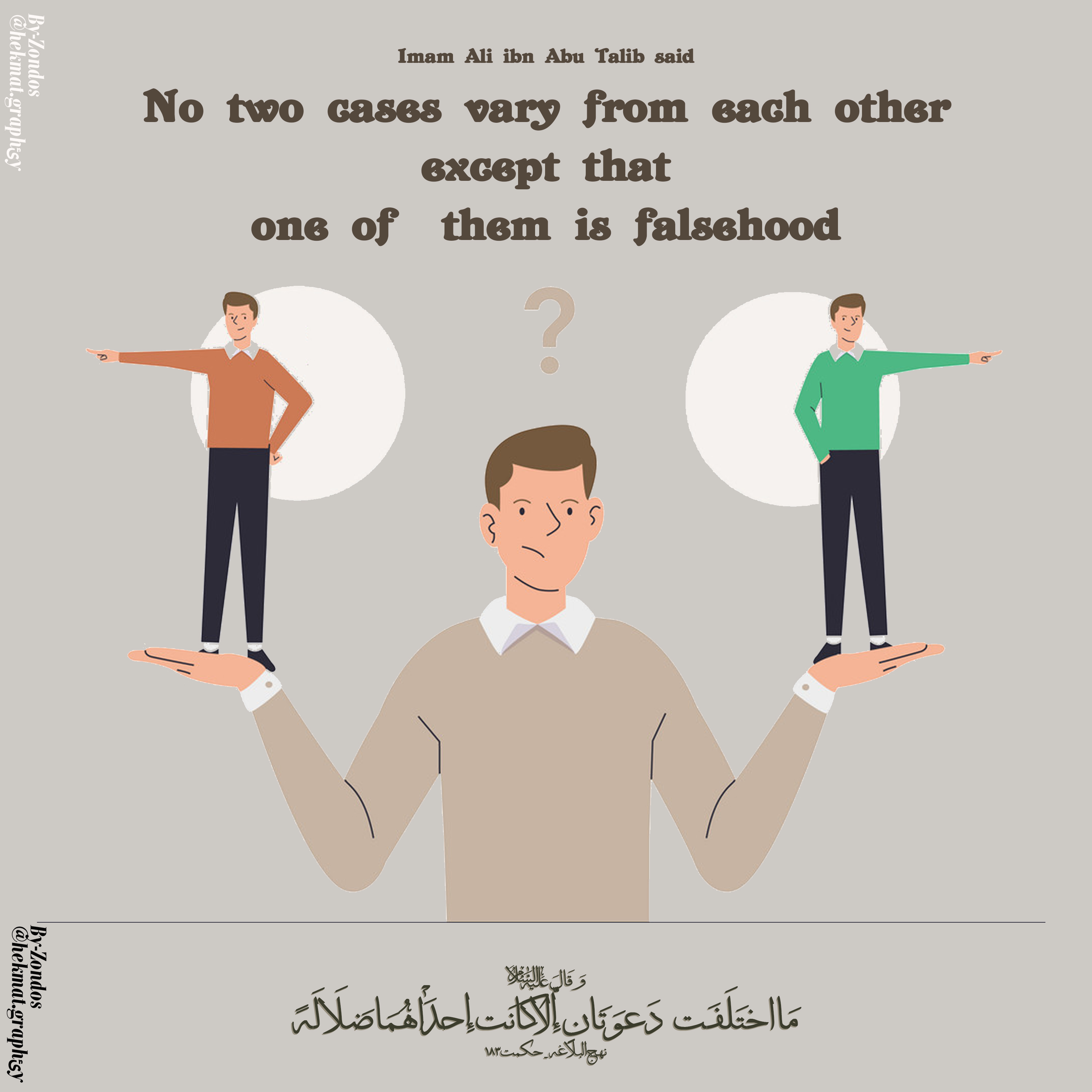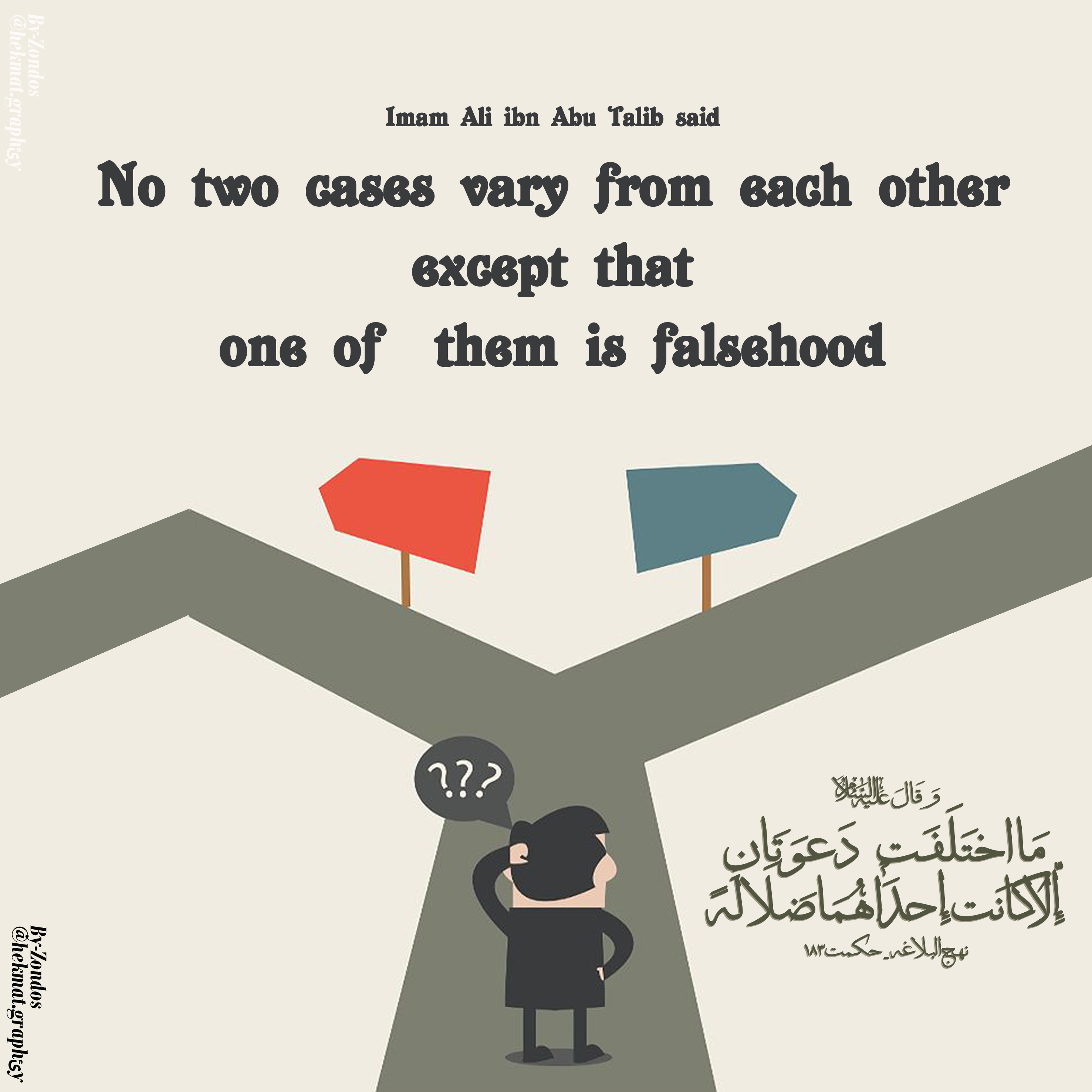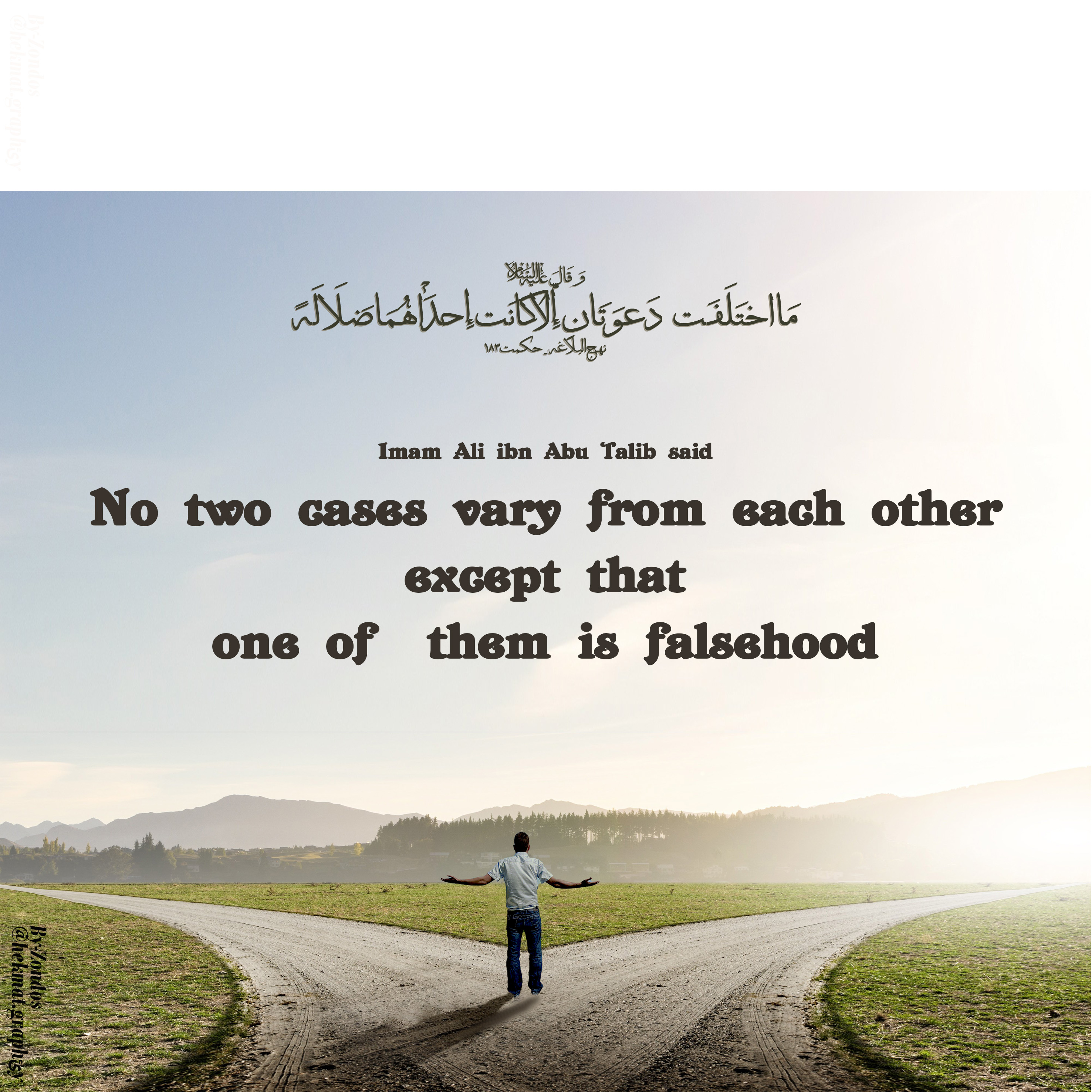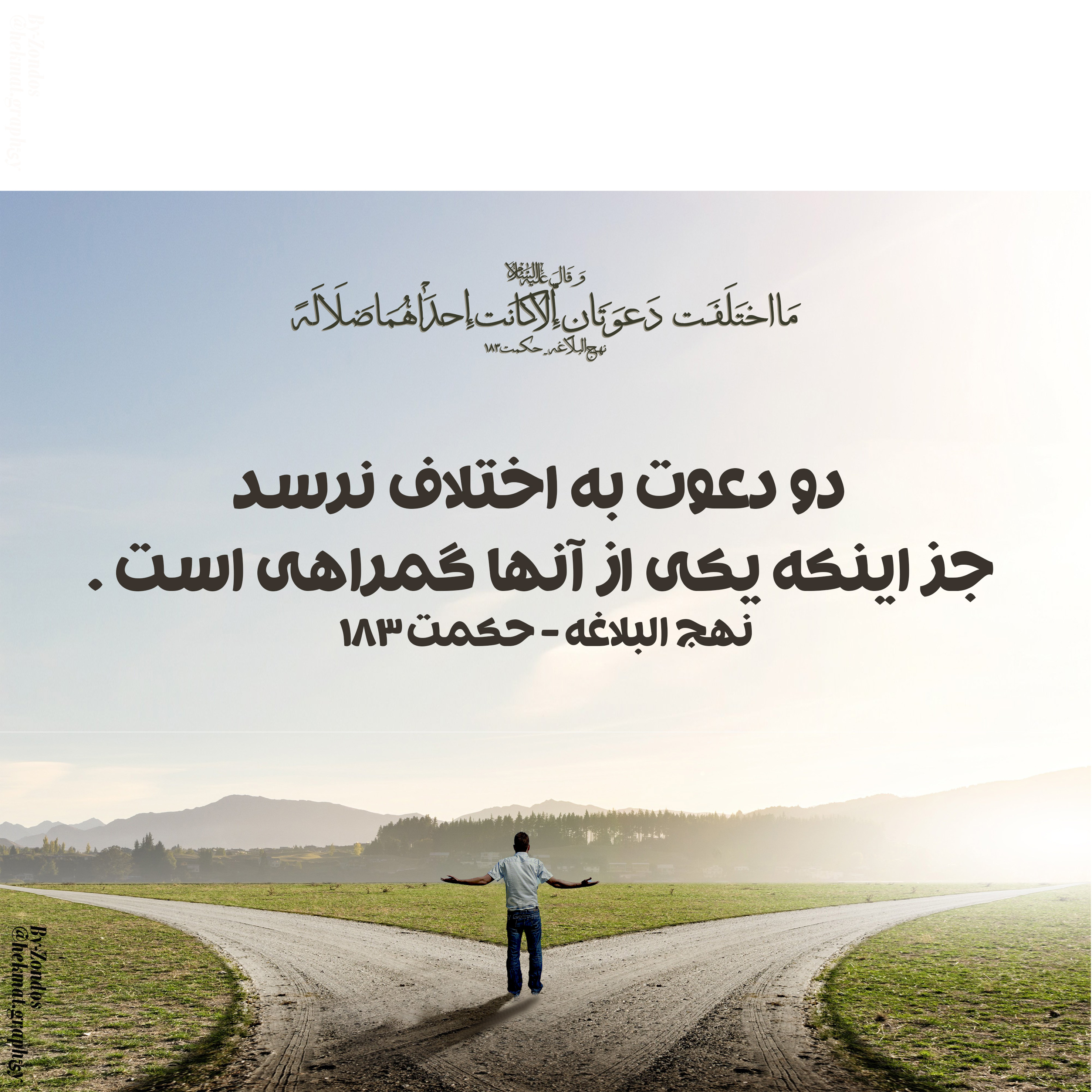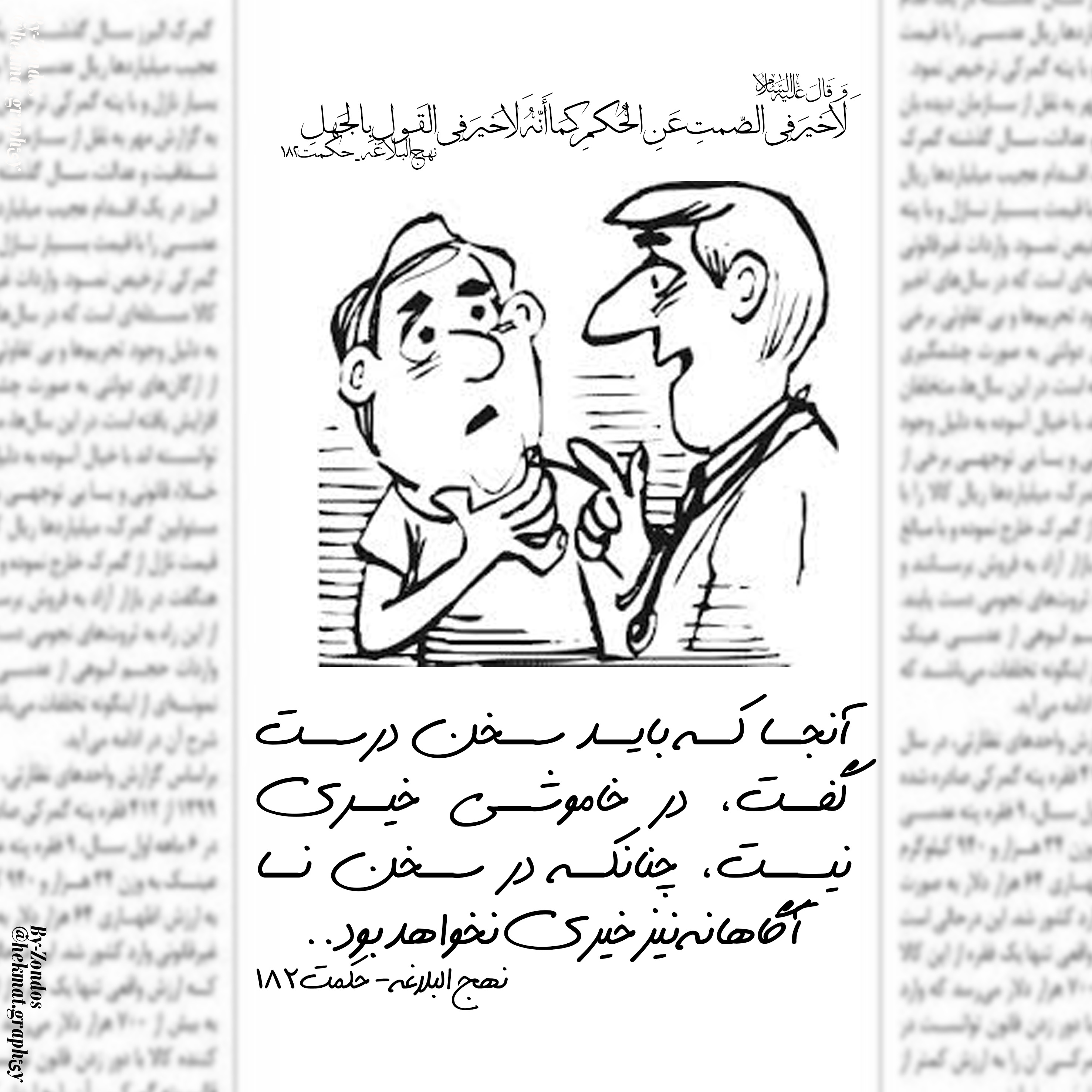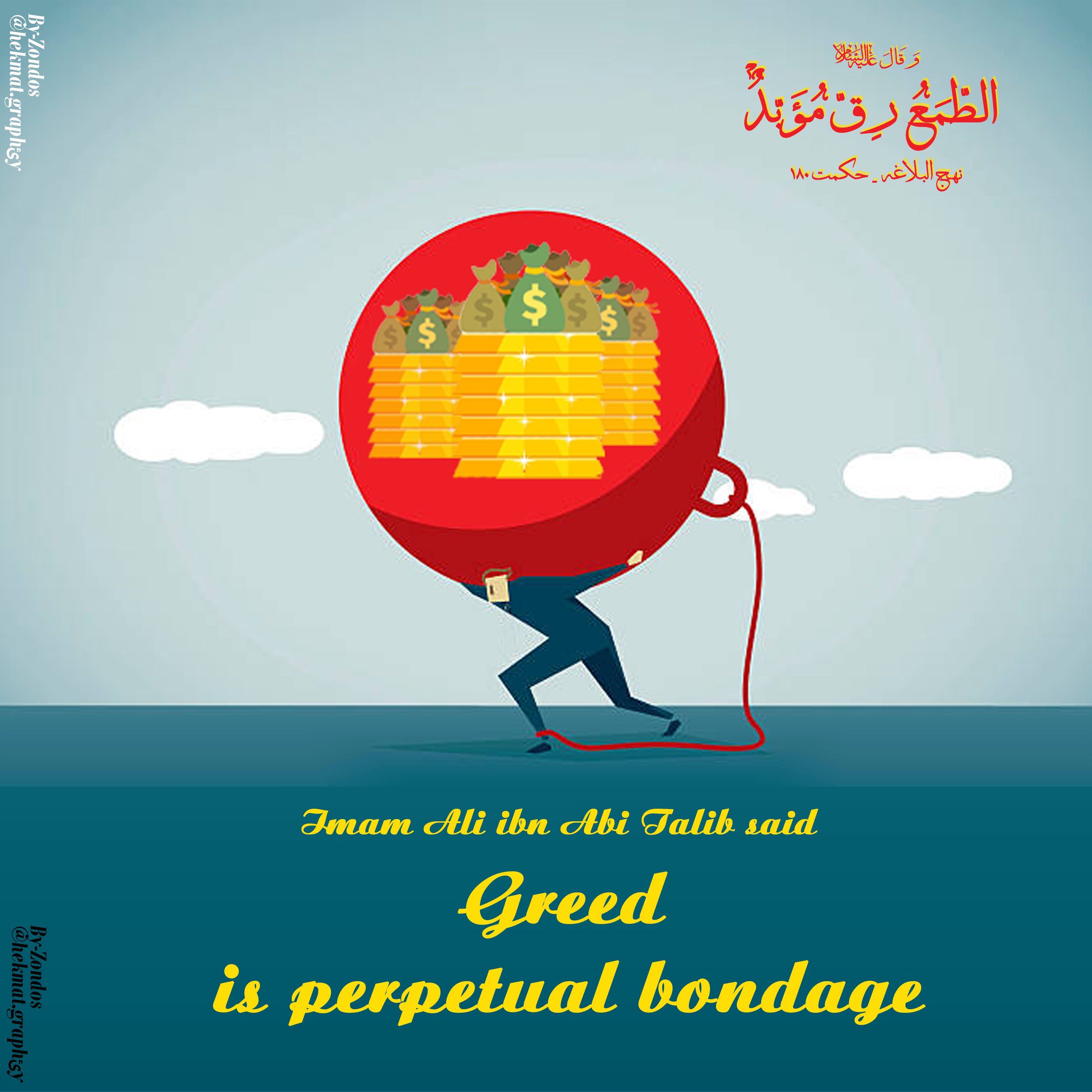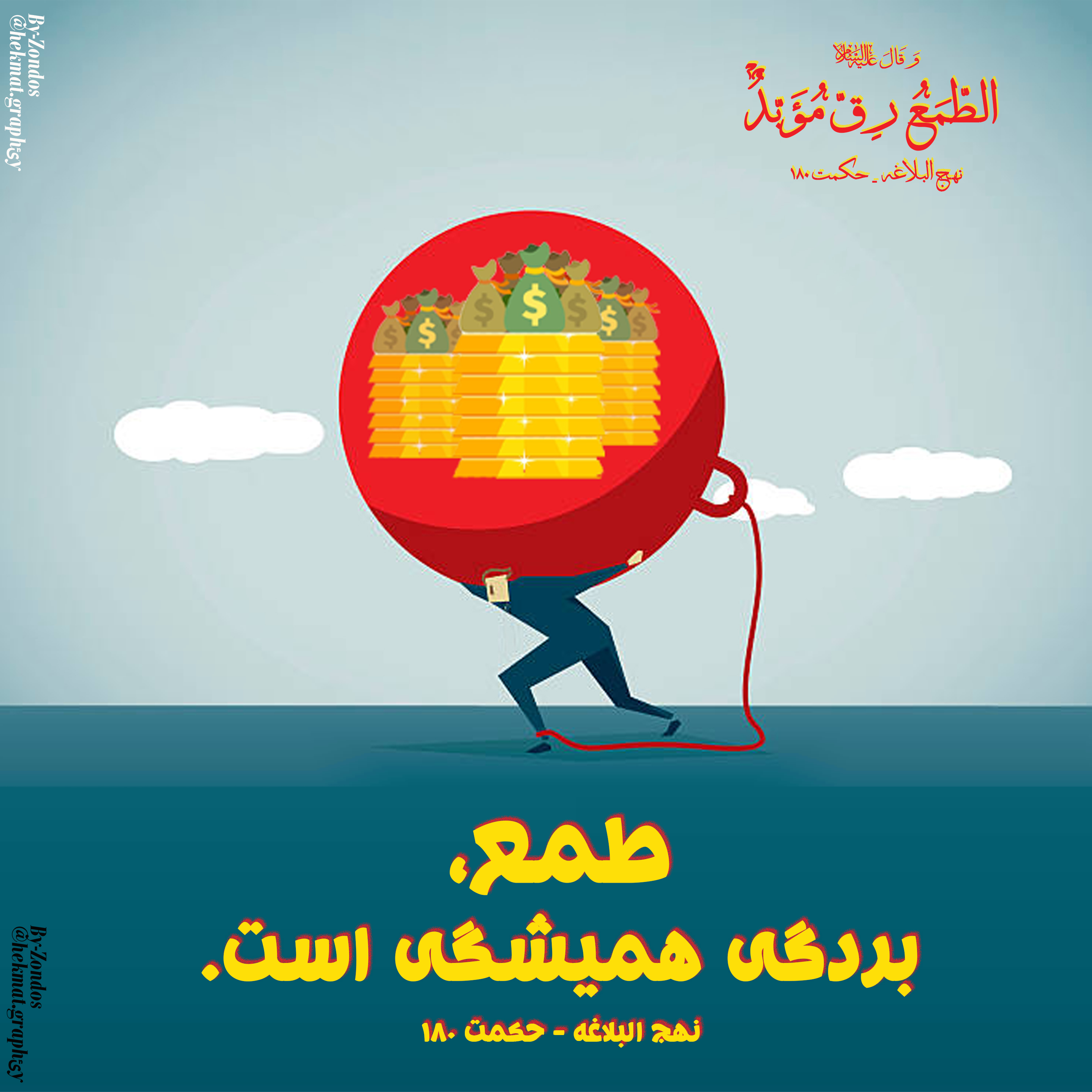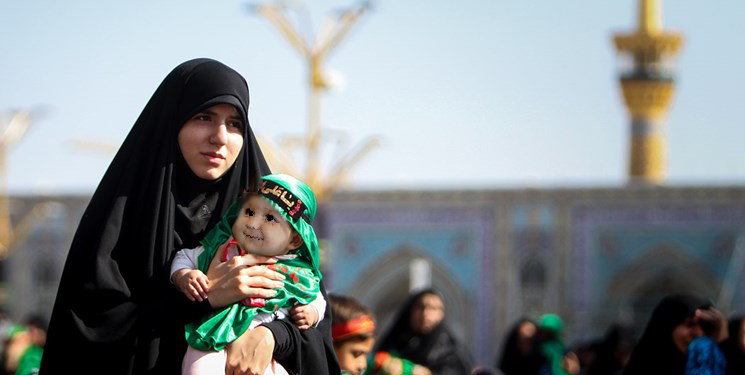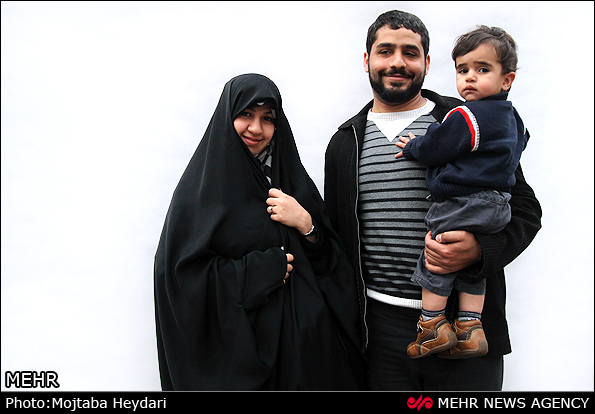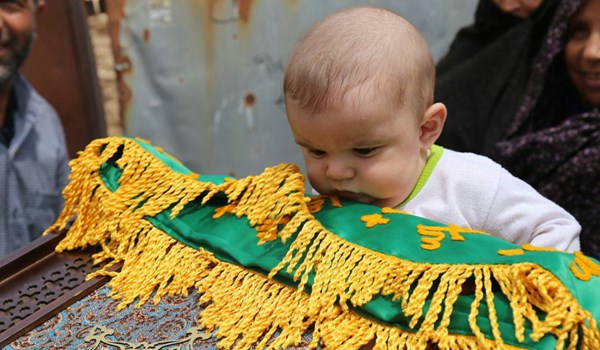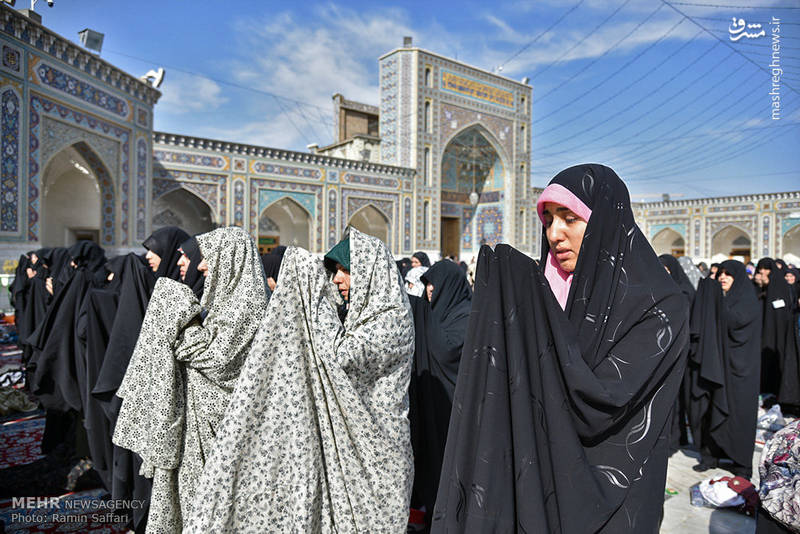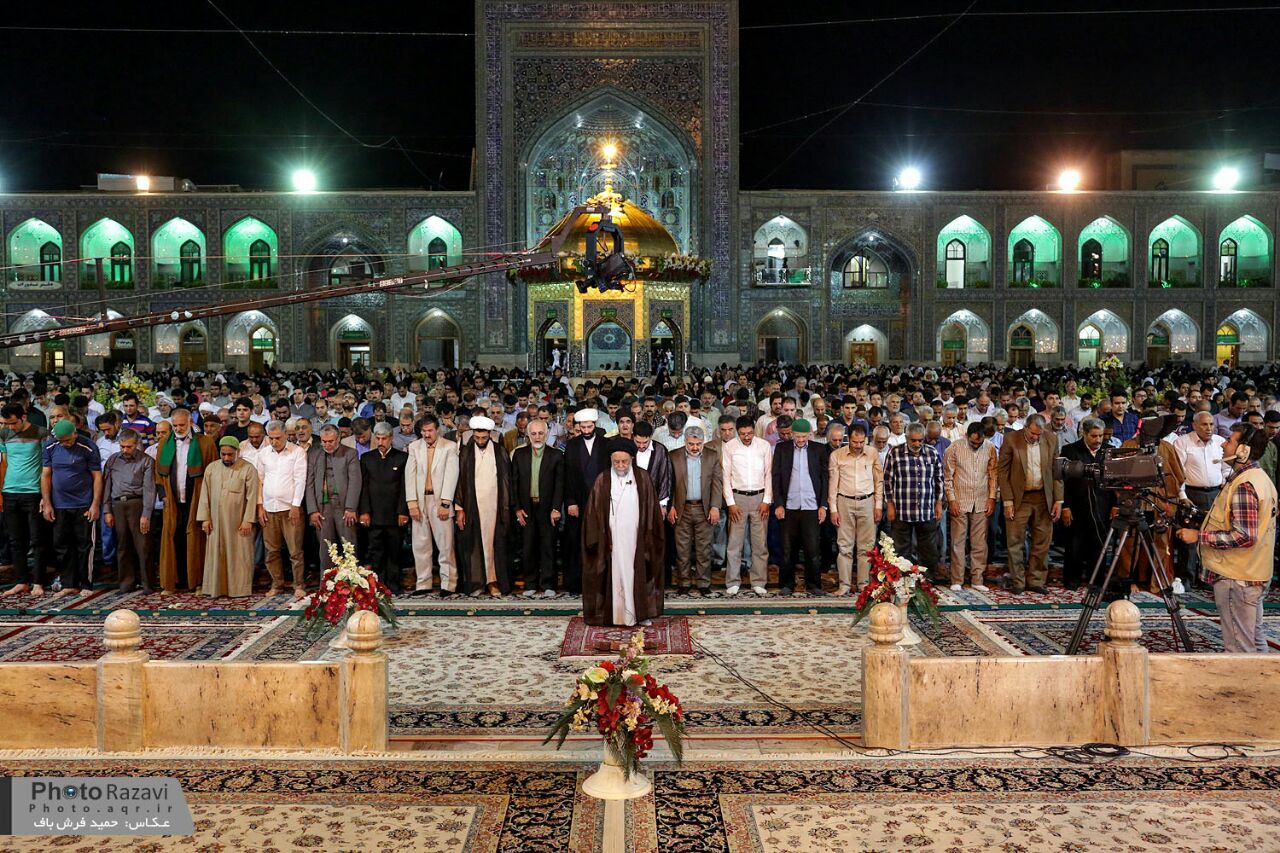حکمت گرافی
حکمت گرافی نهج البلاغه. صحیفه سجادیه. ادعیه. احادیث و...حکمت گرافی
حکمت گرافی نهج البلاغه. صحیفه سجادیه. ادعیه. احادیث و...مناجات الخائفین
مناجات 15 گانه امام سجاد علیه السلام- مناجات خمس عشر
مناجات سوم : مناجات الخائفین
منبع: مفاتیح الجنان
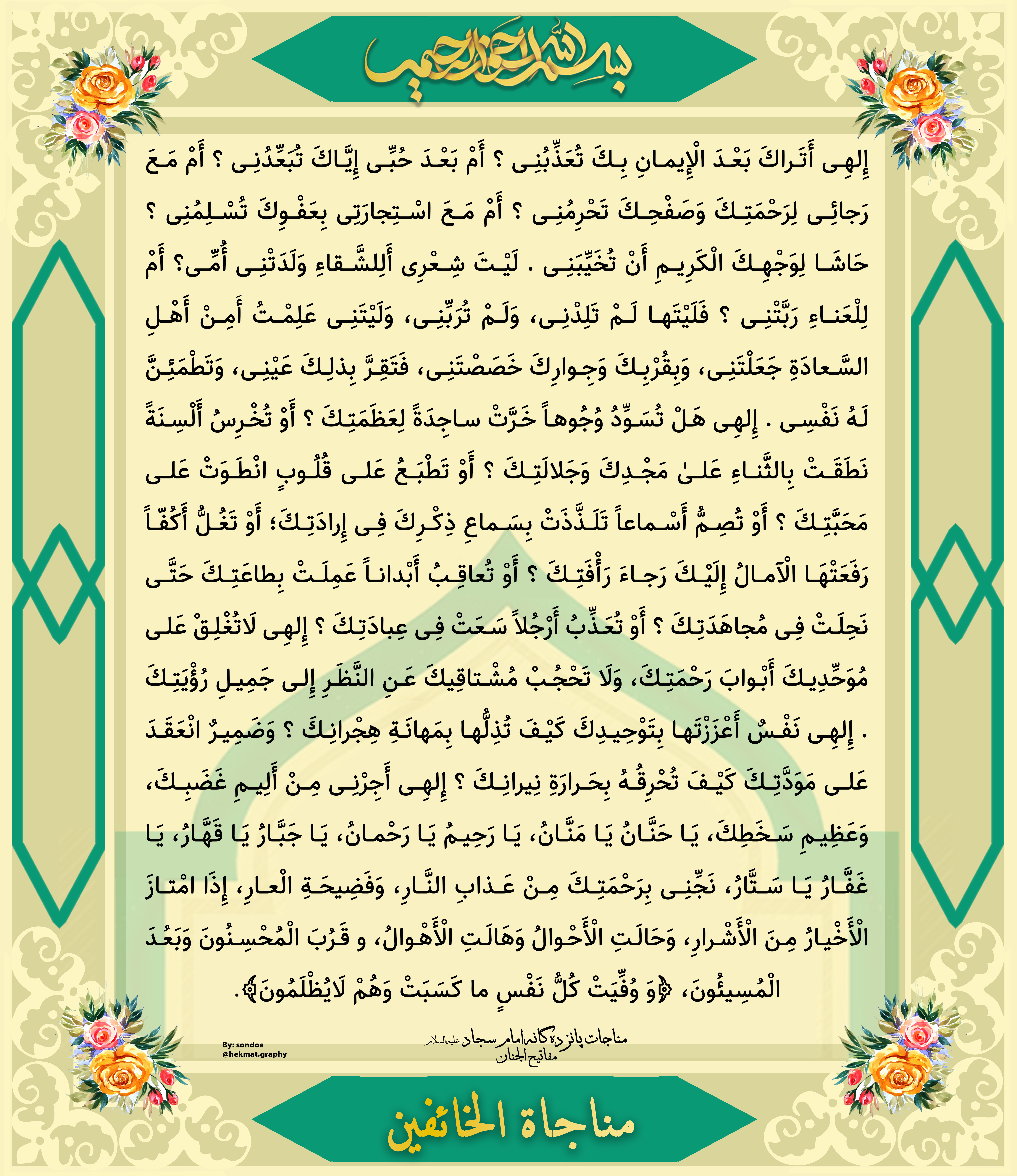
مناجات الشاکین
مناجات 15 گانه امام سجاد علیه السلام- مناجات خمس عشر
مناجات دوم : مناجات الشاکین
منبع: مفاتیح الجنان
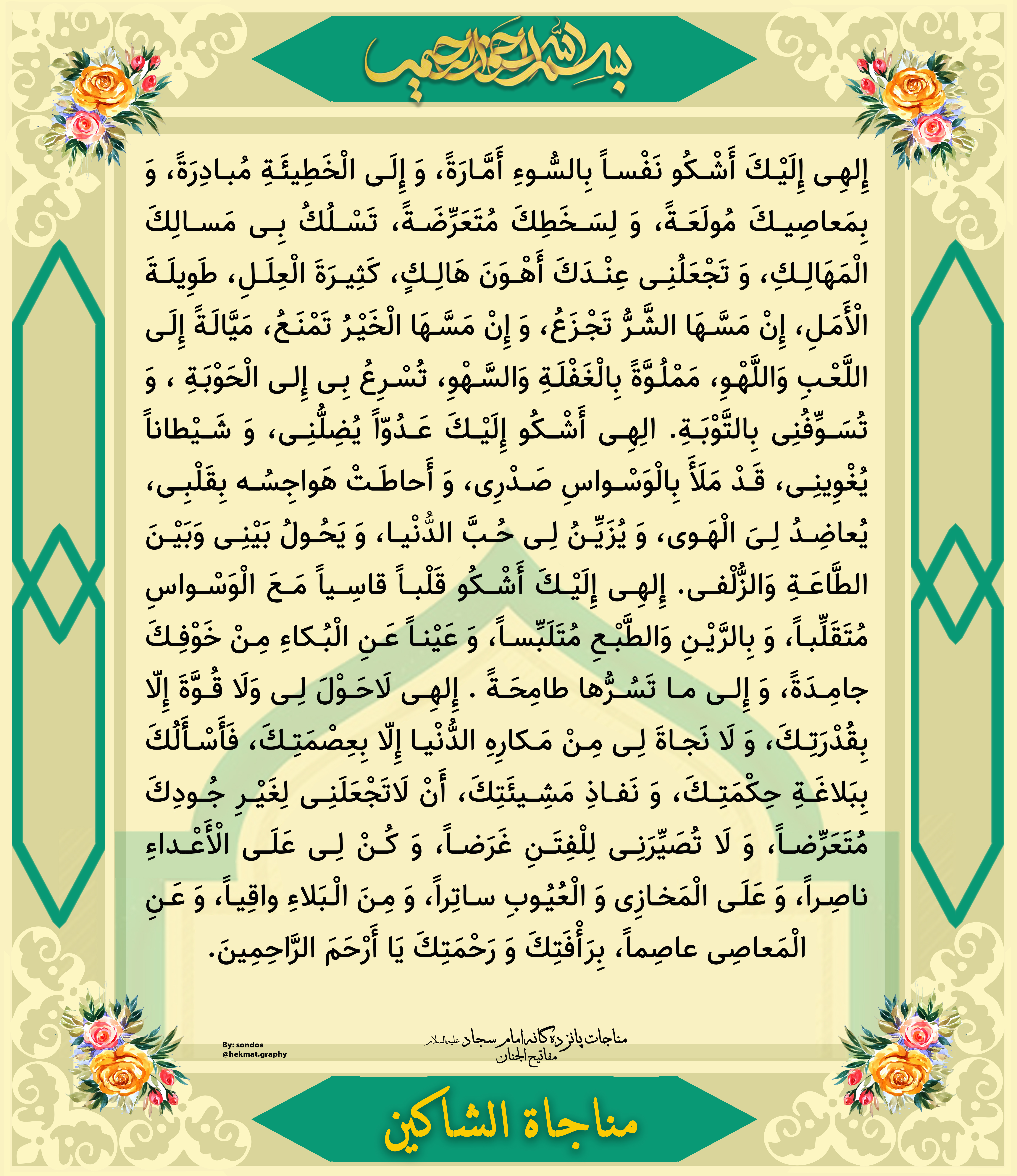
مناجات التائبین
مناجات 15 گانه امام سجاد علیه السلام- مناجات خمس عشر
مناجات اول: مناجات التائبین
منبع: مفاتیح الجنان
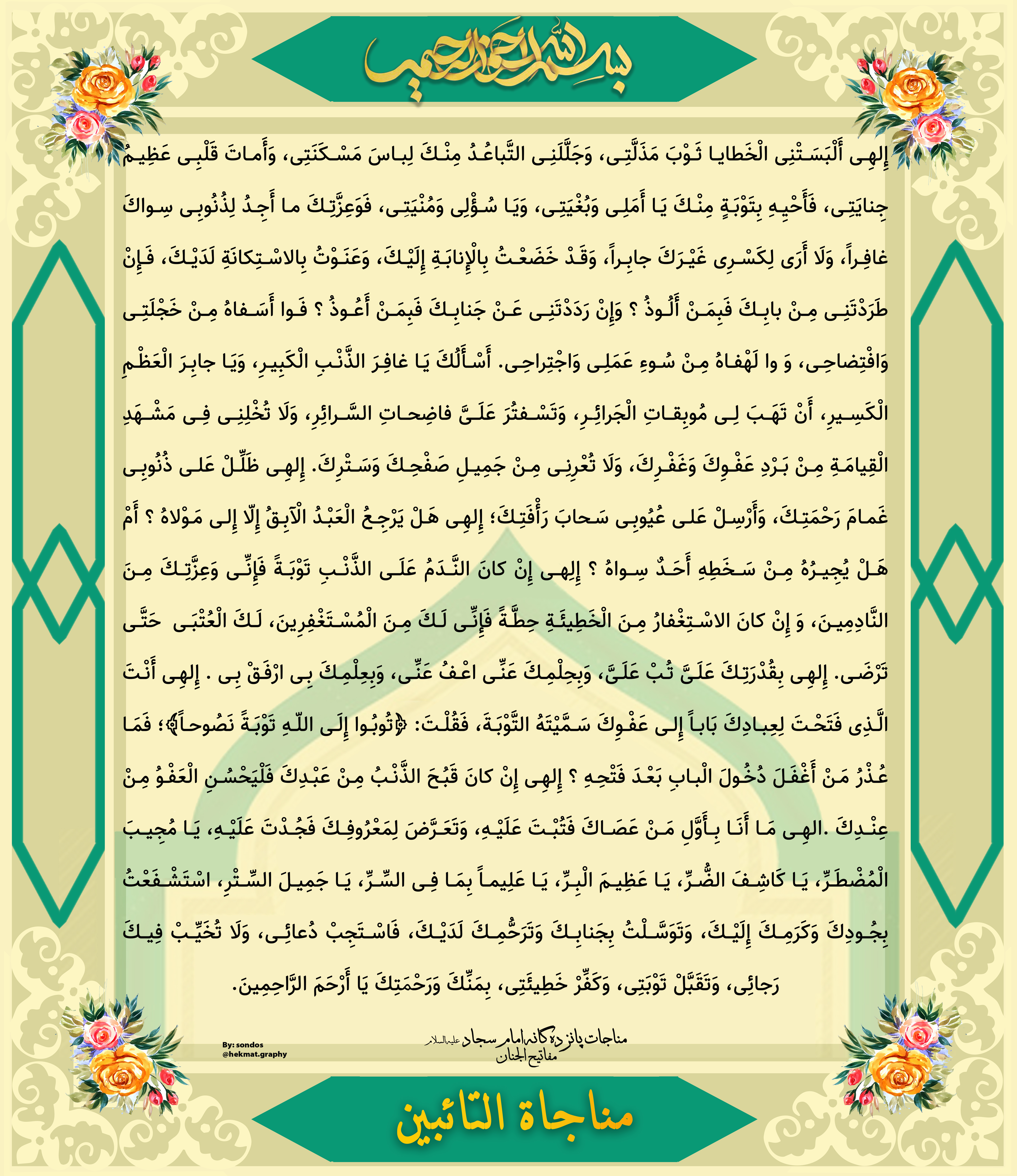
نهج البلاغه- حکمت 181
نهج البلاغه- حکمت 181

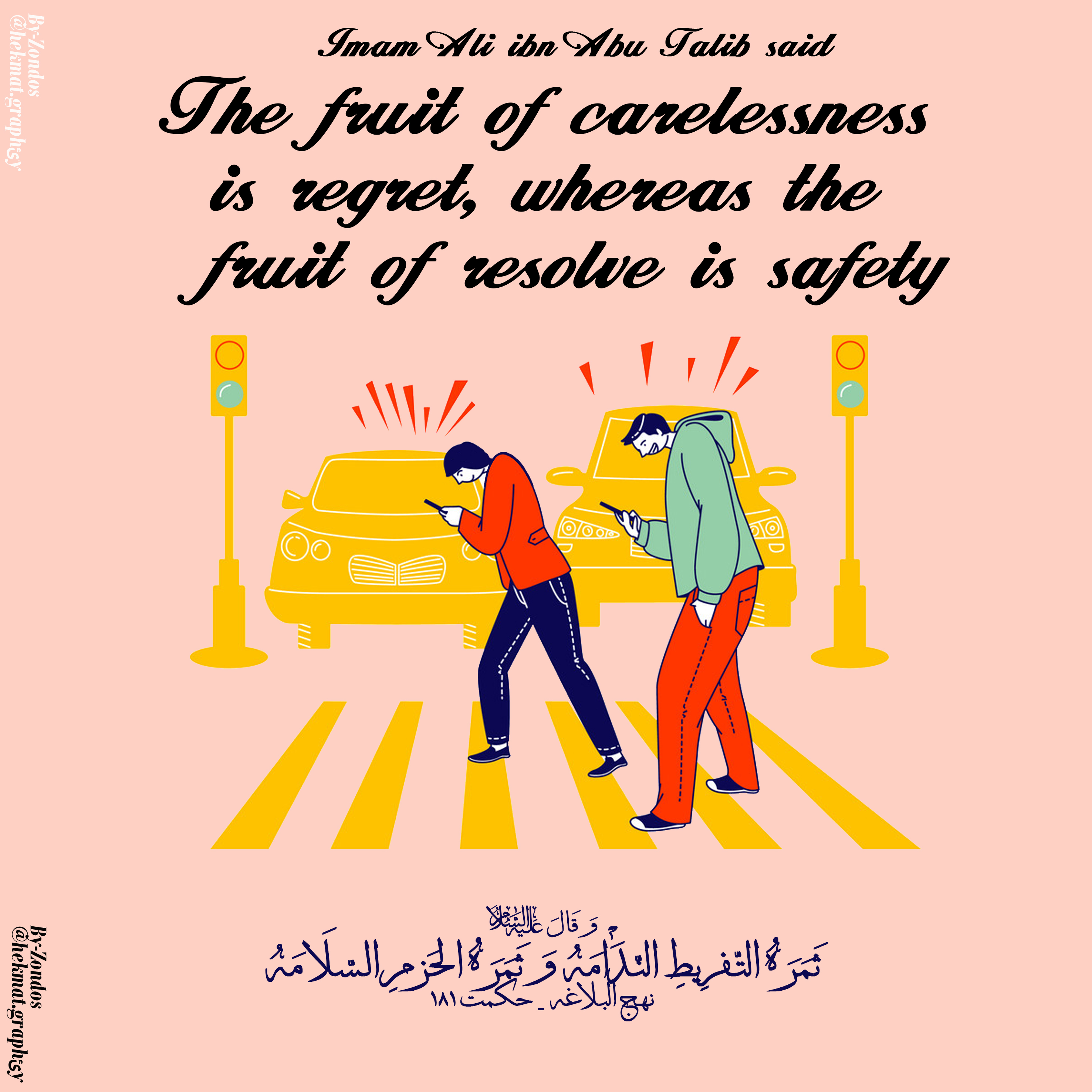
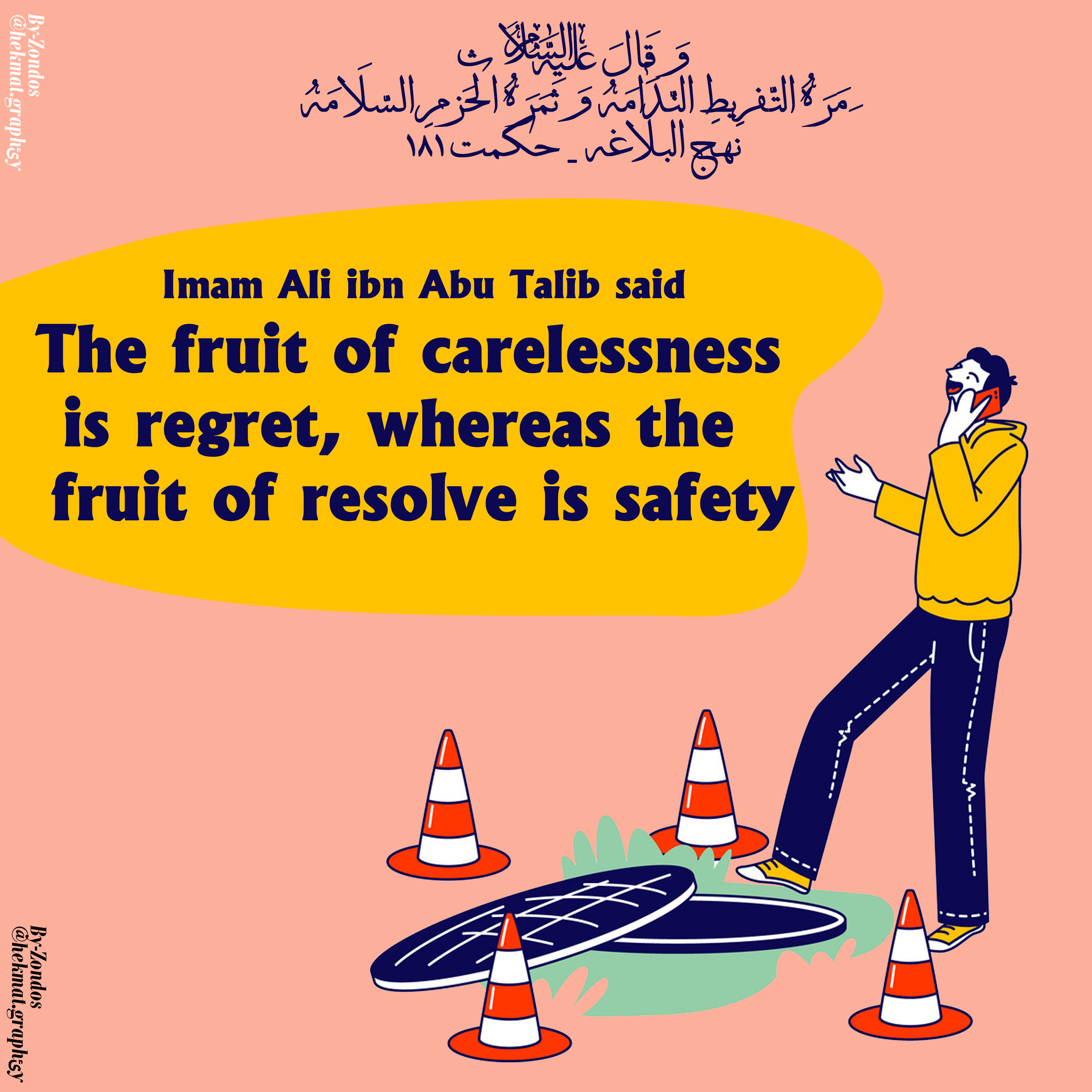

وَ قَالَ علیه السلام ثَمَرَهُ التّفرِیطِ النّدَامَهُ وَ ثَمَرَهُ الحَزمِ السّلَامَهُ
و درود خدا بر او، فرمود: حاصل کوتاهی، پشیمانی، و حاصل دوراندیشی، سلامت است .
Imām Ali ibn Abū Tālib said: “The fruit of carelessness is regret, whereas the fruit of
”.resolve is safety
نهج البلاغه - حکمت 167
نهج البلاغه - حکمت 167
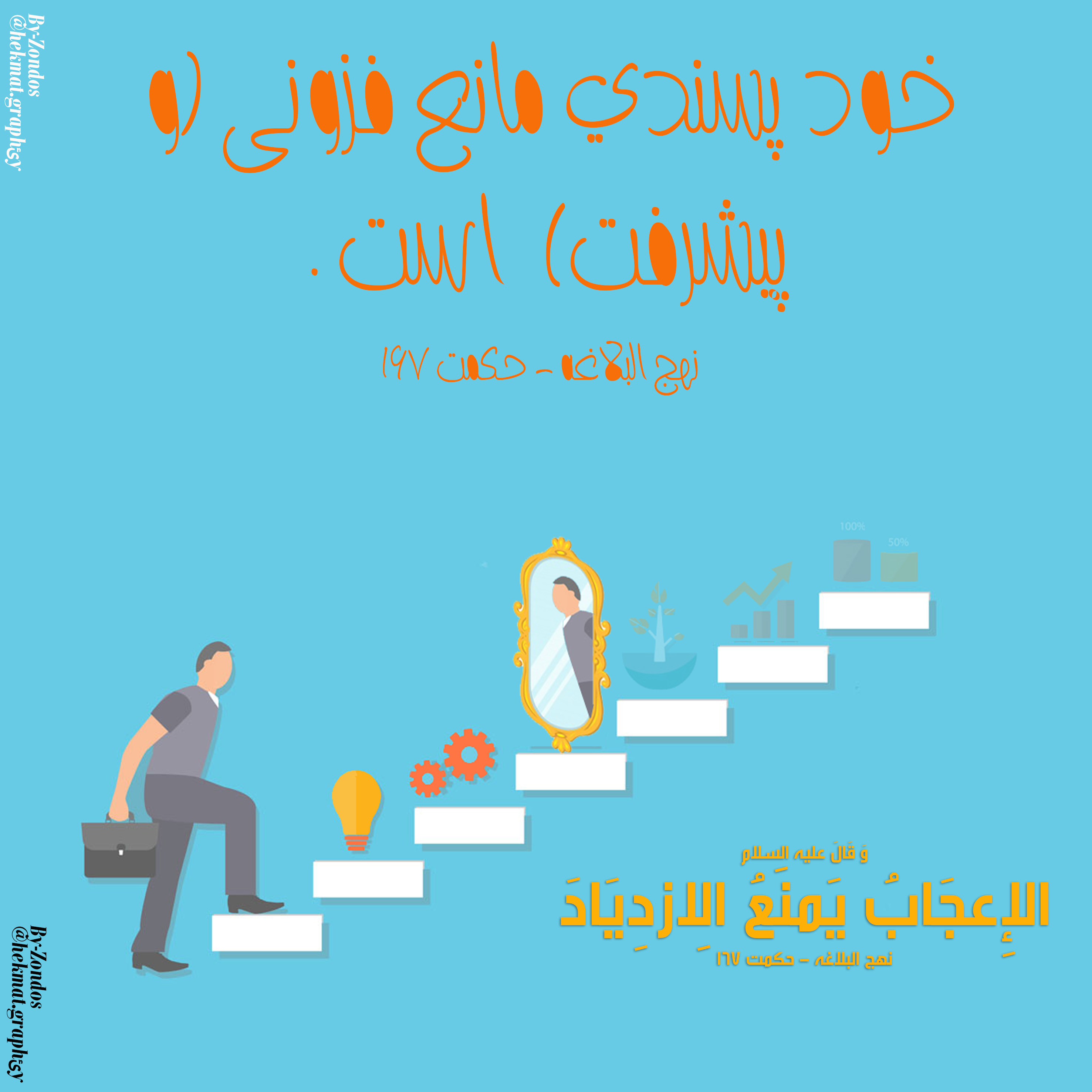
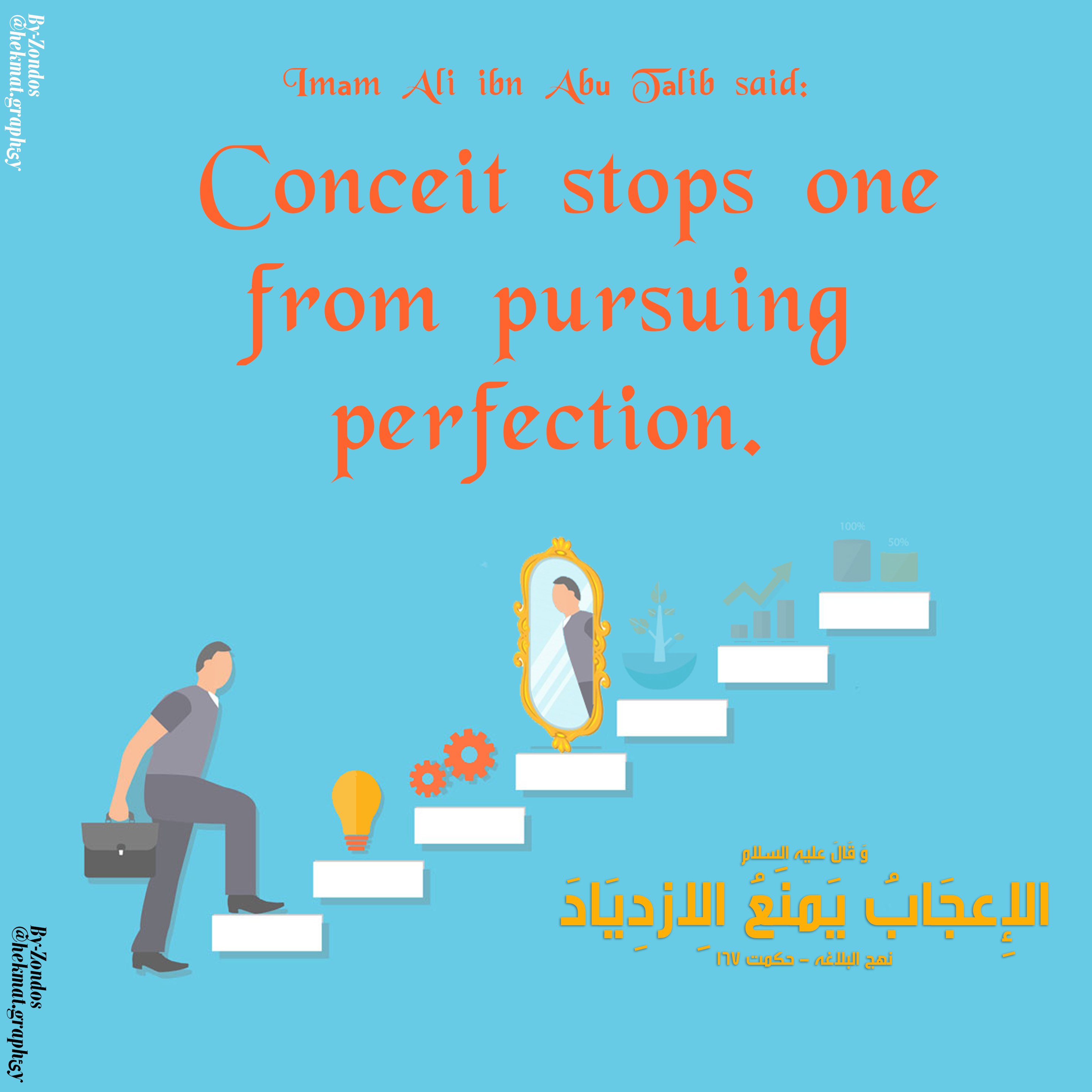
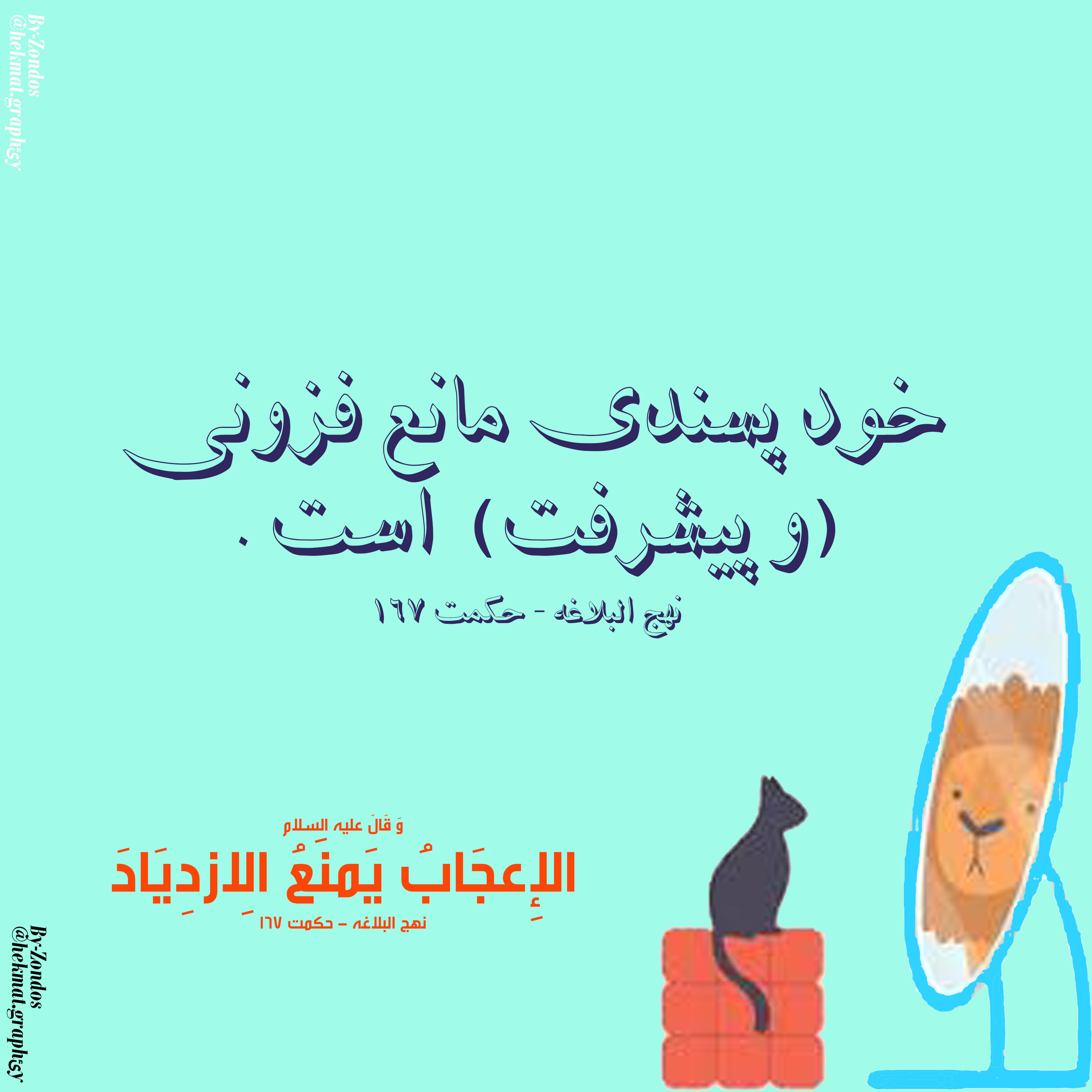
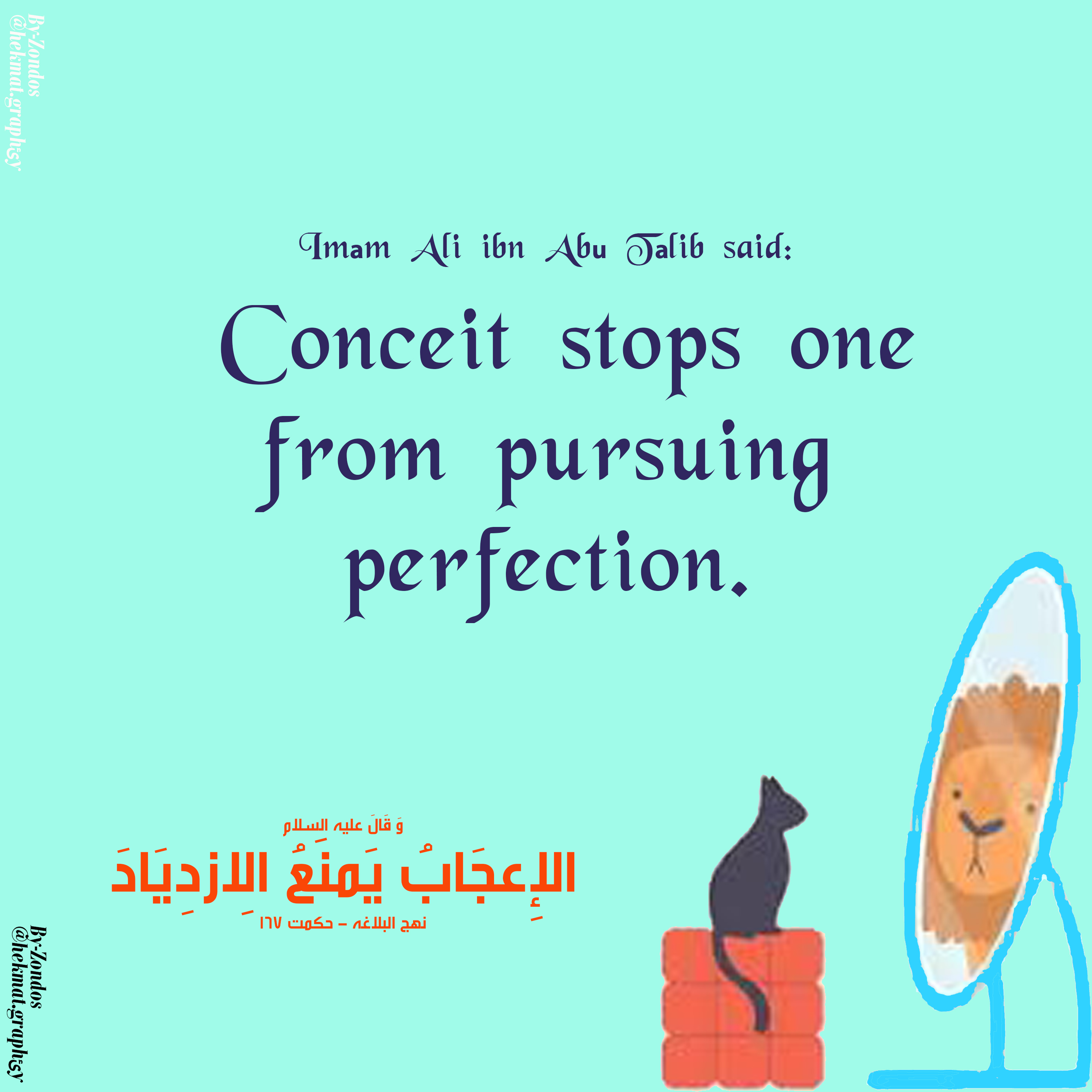


و درودخدا بر او، فرمود:خودپسندی مانع فزونی است .
”.ImāmAli ibn Abū Tālib said: “Conceitstops one frompursuing perfection
نهج البلاغه - حکمت 165
نهج البلاغه
حکمت 165
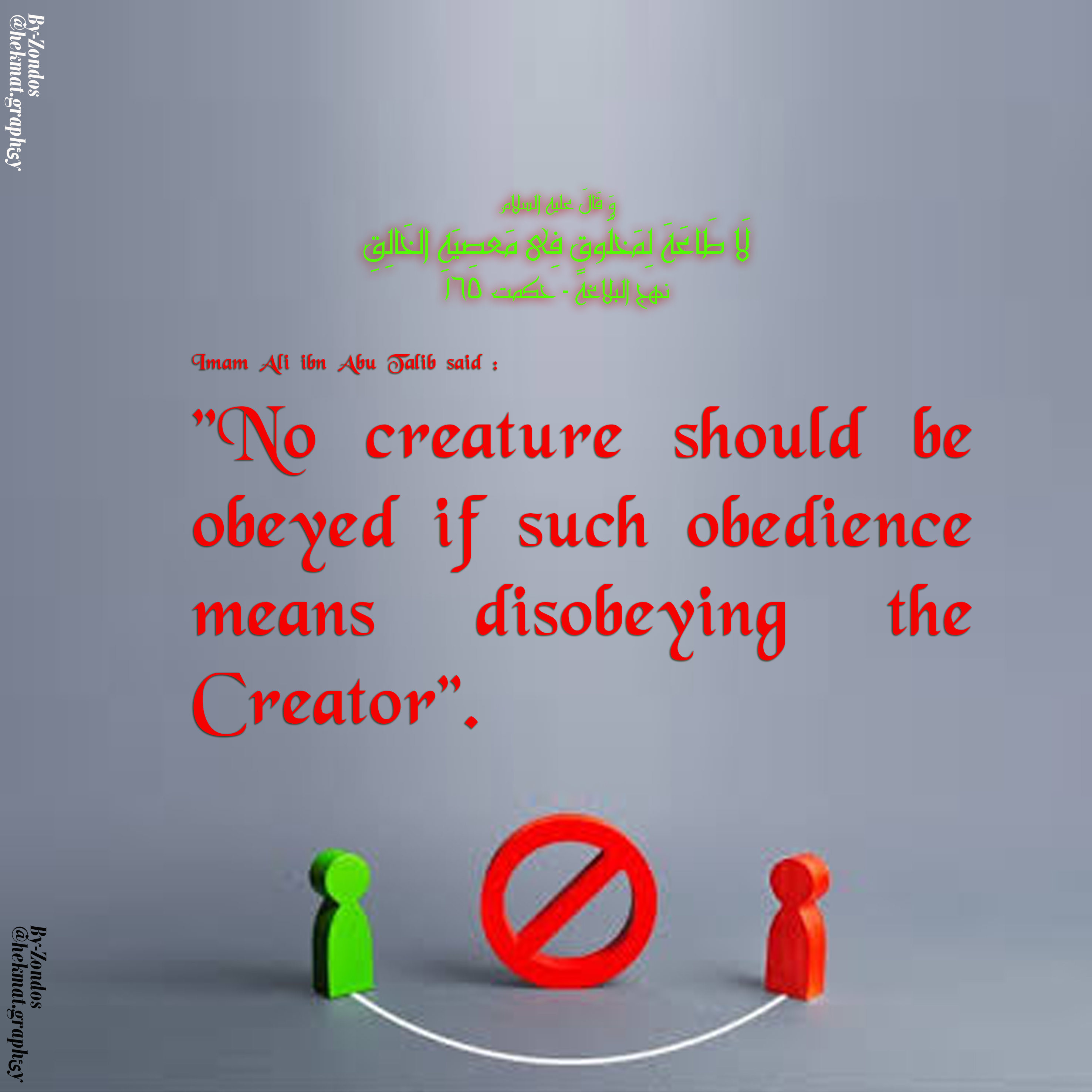

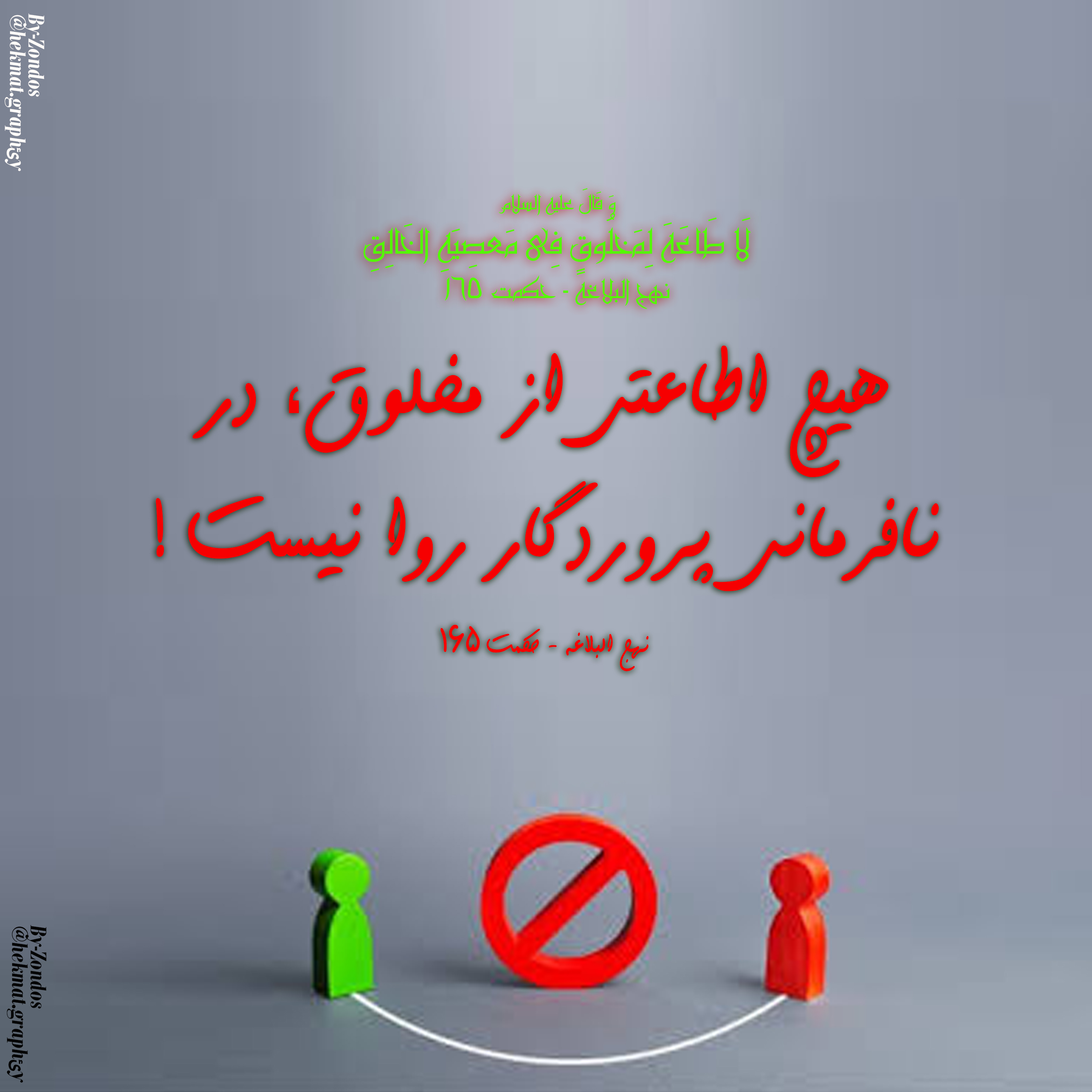
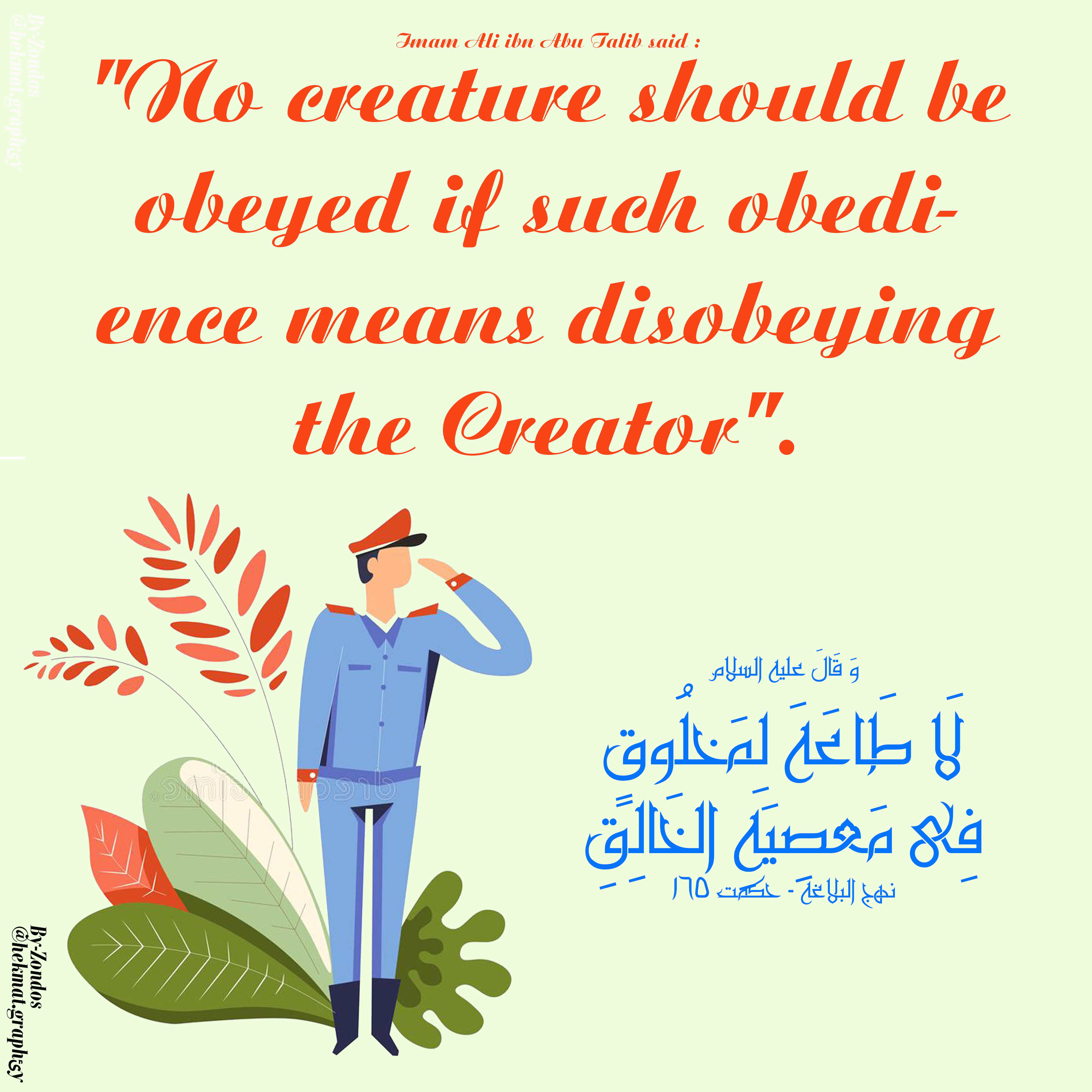
و درودخدا بر او، فرمود: هیچاطاعتیاز مخلوق، در نافرمانیپروردگار روا نیست !.
ق ِ عص َ ی ِ َ ه ِ ف ل ی ِ َو َقا َلعلیه السلام لَا َ َه َط
ImamAli ibn Abu Talib said : No blame should be placed on one in delaying taking what ”.belongs to him; blame should be on the one who takes what does not belong to him
نهج البلاغه - حکمت 164
نهج البلاغه - حکمت 164
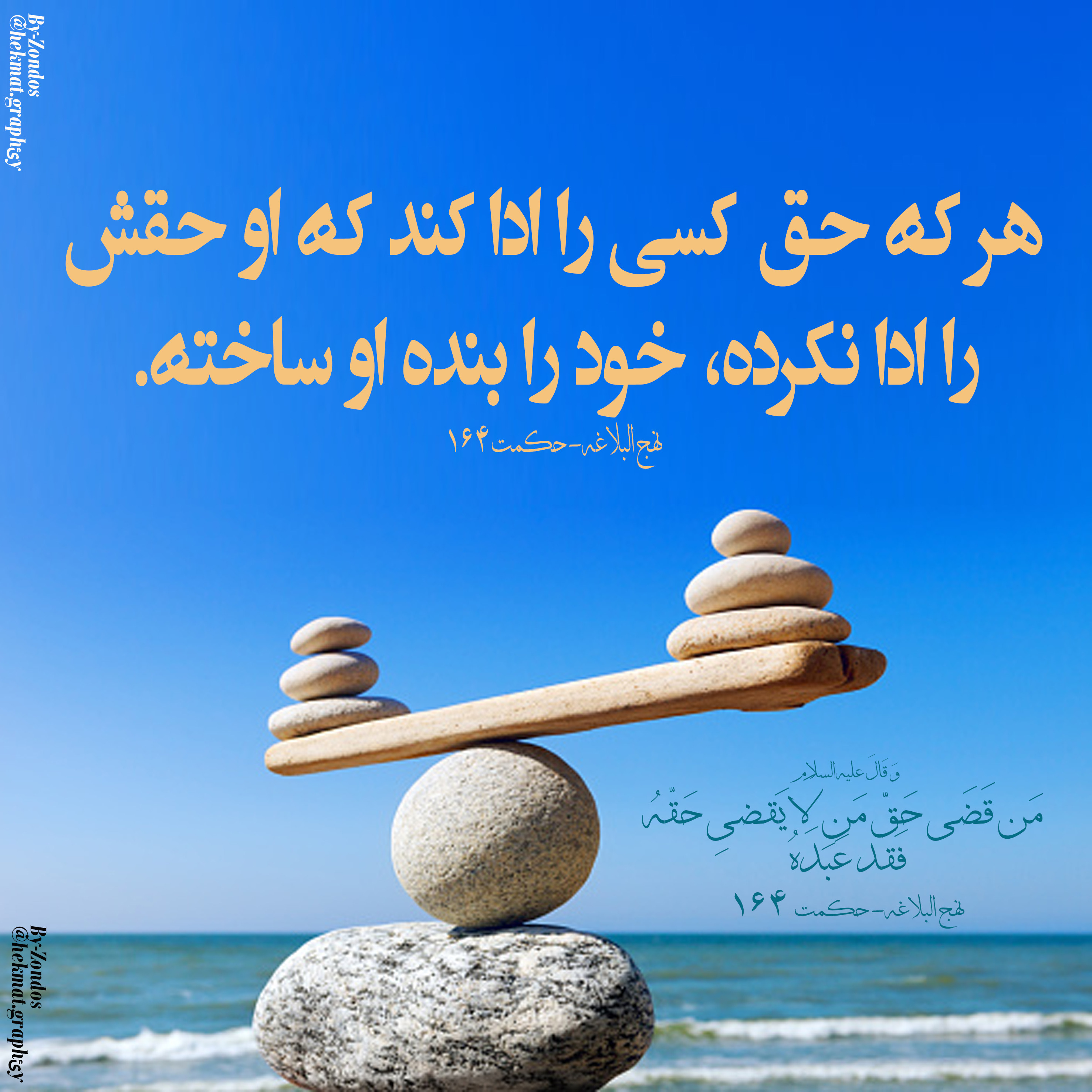
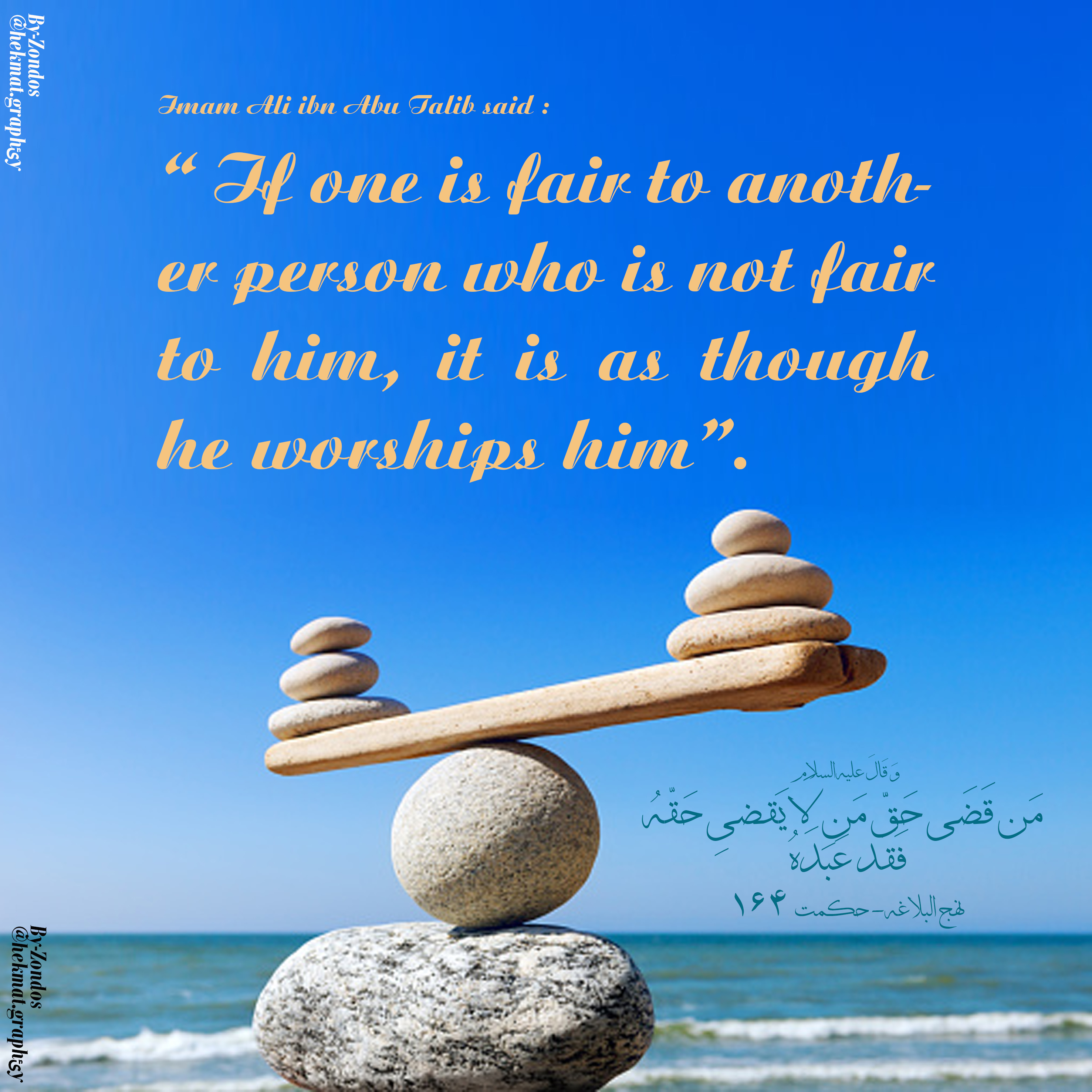
و درودخدا بر او، فرمود: رعایت کسی که اوحقش را محترم نمی شمارد نوعی بردگی است .
Imam Ali ibn Abu Talib said : “ If one is fair to another person who is not fair to him, it is ”.as though he worships him
نهج البلاغه- حکمت ۱5۸
نهج البلاغه- حکمت ۱5۸


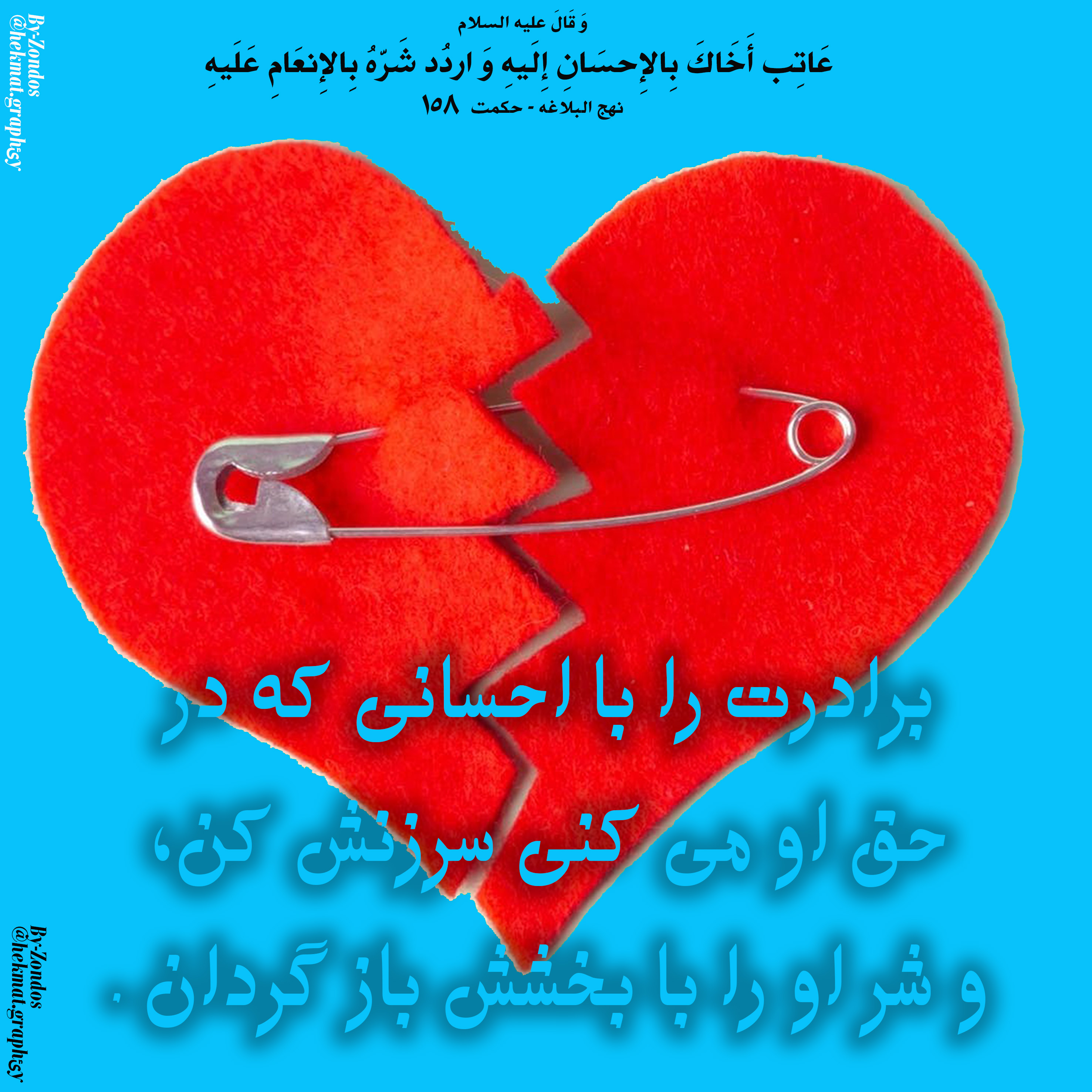


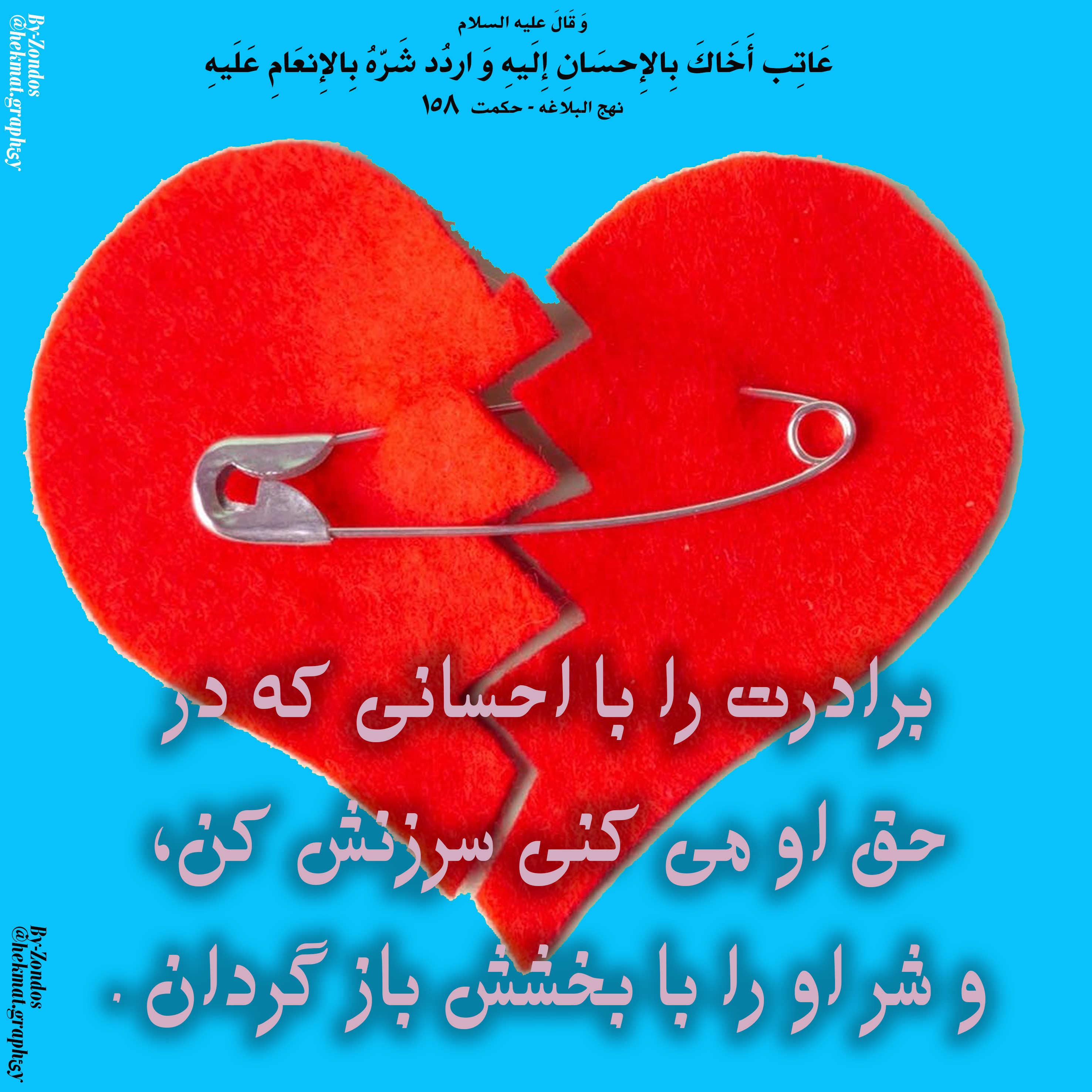
وَ قَالَ علیه السلام عَاتِب أَخَاکَ بِالإِحسَانِ إِلَیهِ وَ اردُد شَرّهُ بِالإِنعَامِ عَلَیهِ
و درود خدا بر او، فرمود: برادرت را با احسانی که در حق او می کنی سرزنش کن، و شر او را با بخشش باز گردان
Imam Ali ibn Abu Talib said : “ Remonstrate with your brother by being kind to him,
”.and respond to his evil by being generous to him
نهج البلاغه- حکمت 153
نهج البلاغه
حکمت 153


وَ قَالَ علیه السلام لَا یَعدَمُ الصّبُورُ الظّفَرَ وَ إِن طَالَ بِهِ الزّمَانُ
و درود خدا بر او، فرمود: انسان شکیبا، پیروزی را از دست نمی دهد، هر چند زمان آن طولانی شود .
Imam Ali ibn Abu Talib said : “ The one who endures does not miss success although it
".may take a long time
نهج البلاغه- حکمت ۱۵۲
نهج البلاغه
حکمت ۱۵۲




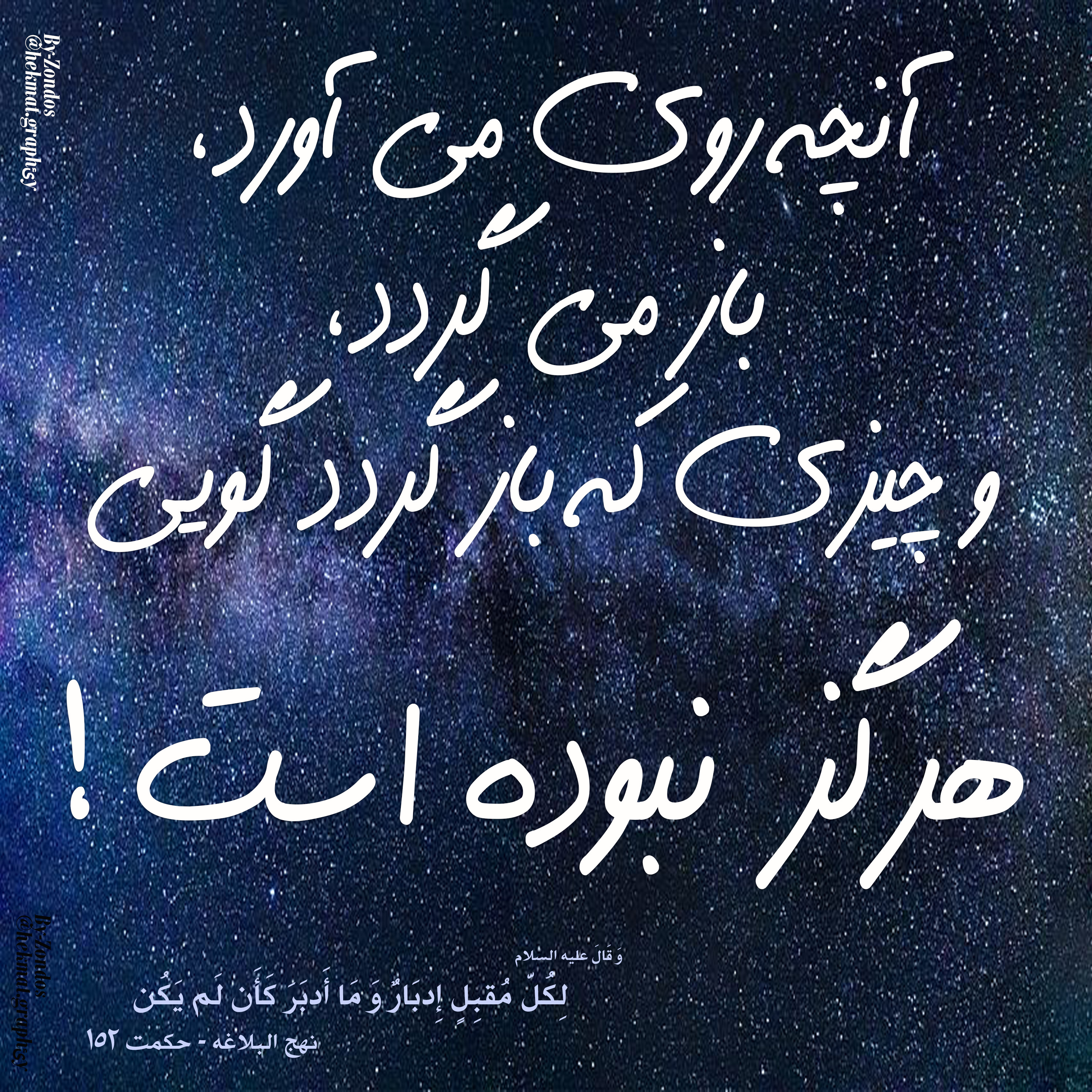
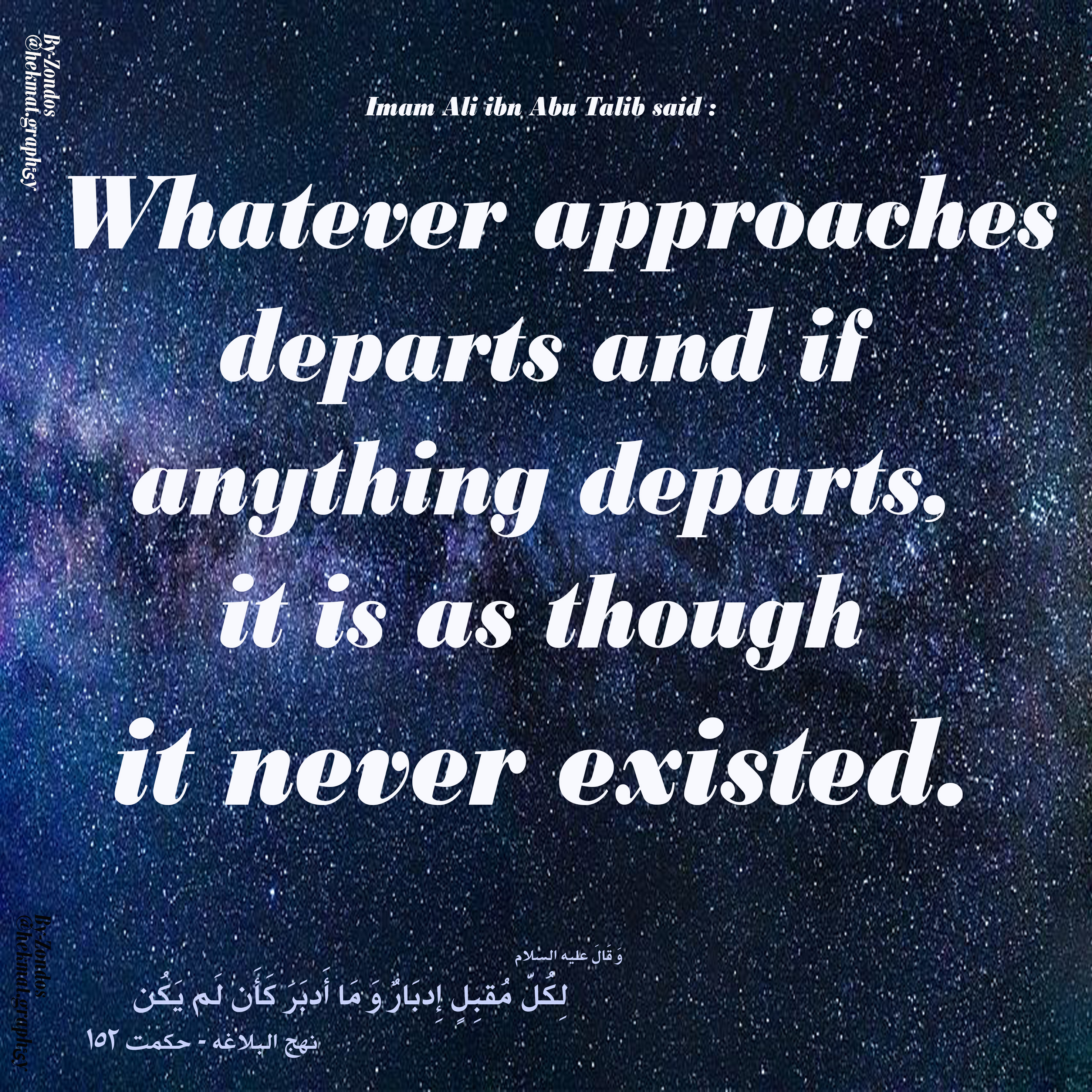
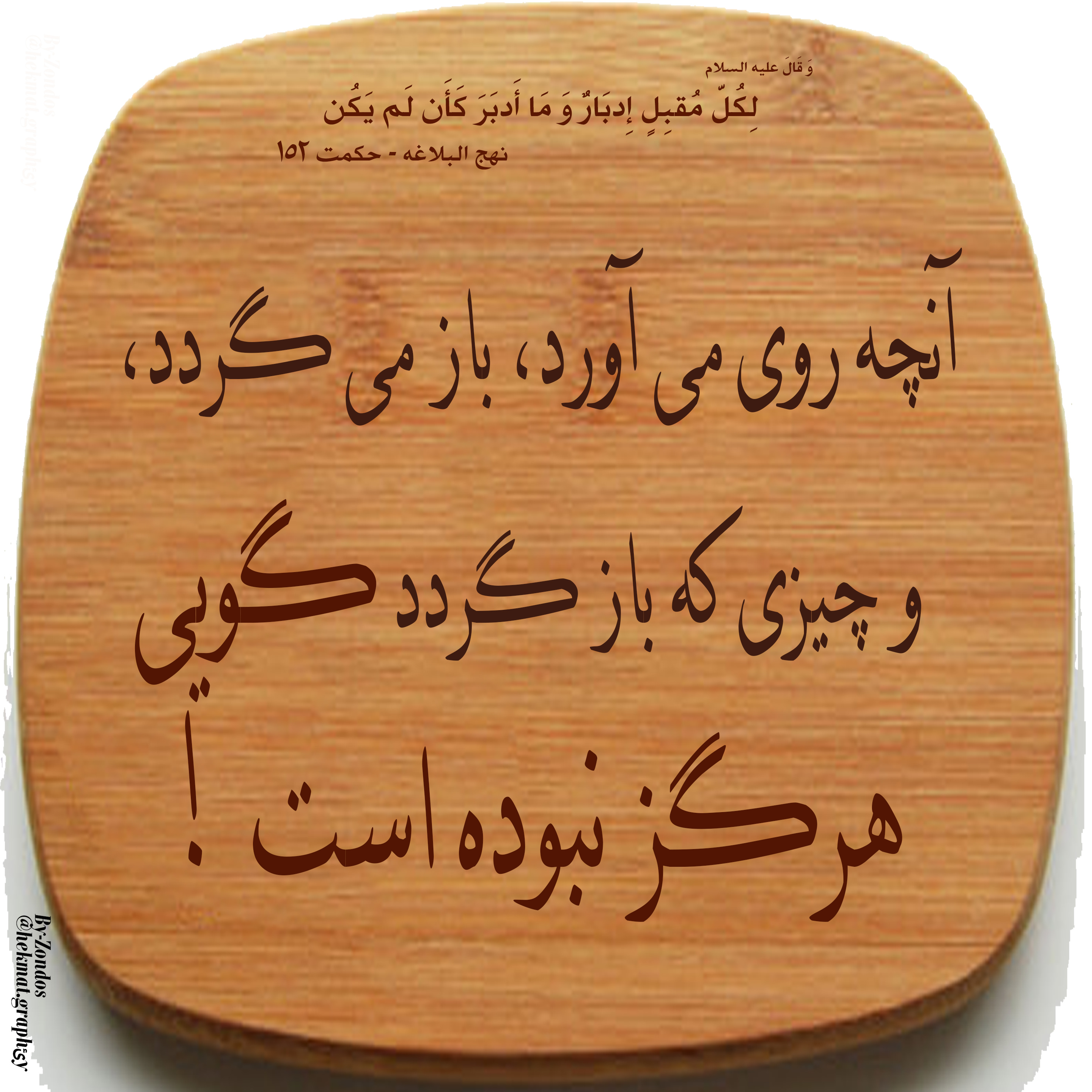

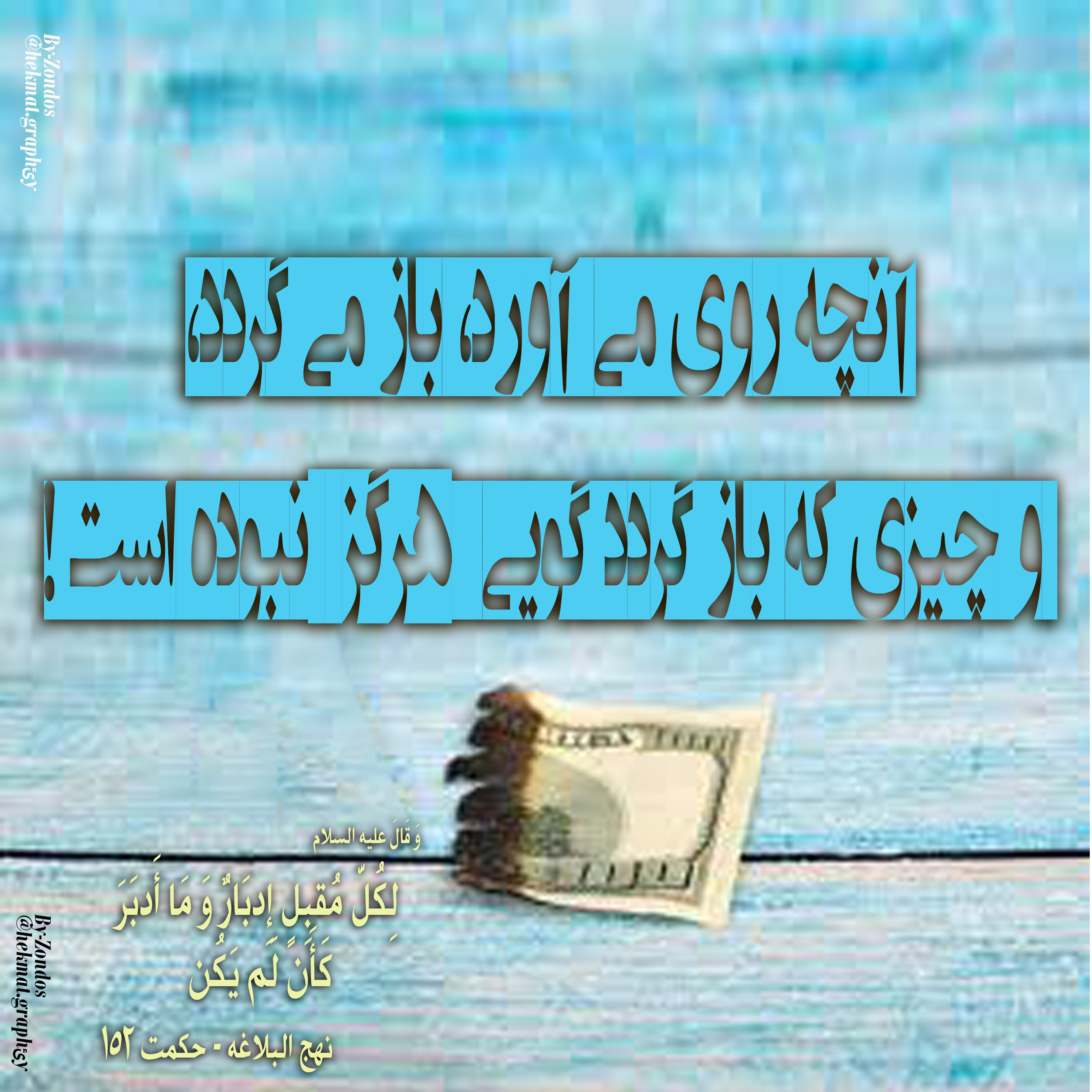
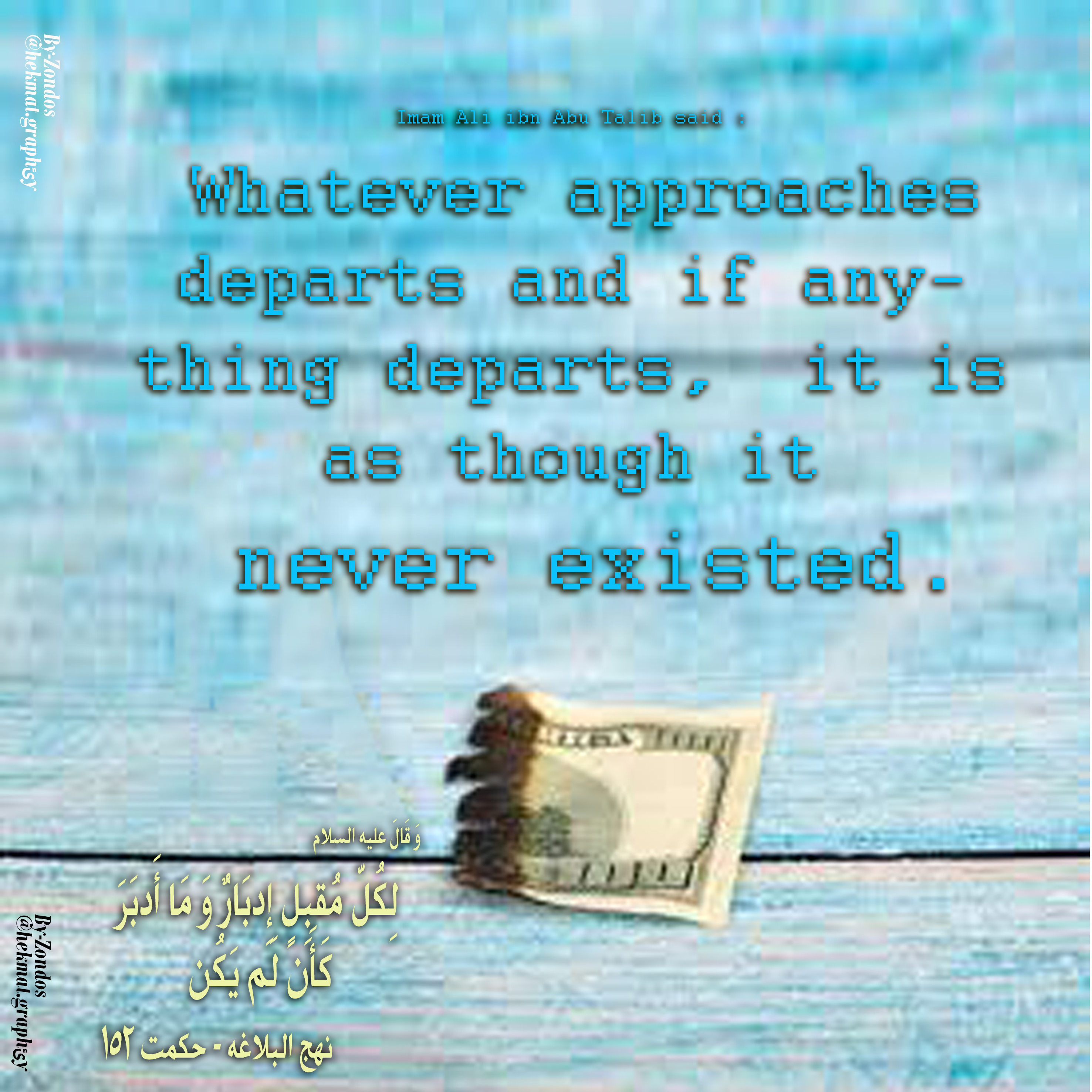


وَ قَالَ علیه السلام لِکُلّ مُقبِلٍ إِدبَارٌ وَ مَا أَدبَرَ کَأَن لَم یَکُن
و درود خدا بر او، فرمود: آنچه روی می آورد، باز می گردد، و چیزی که باز گردد گویی هرگز نبوده است !
Imam Ali ibn Abu Talib said : “ Whatever approaches departs and if anything departs, it is as though it never existed”.
نهج البلاغه-حکمت ۱۴9
نهج البلاغه
حکمت ۱۴9


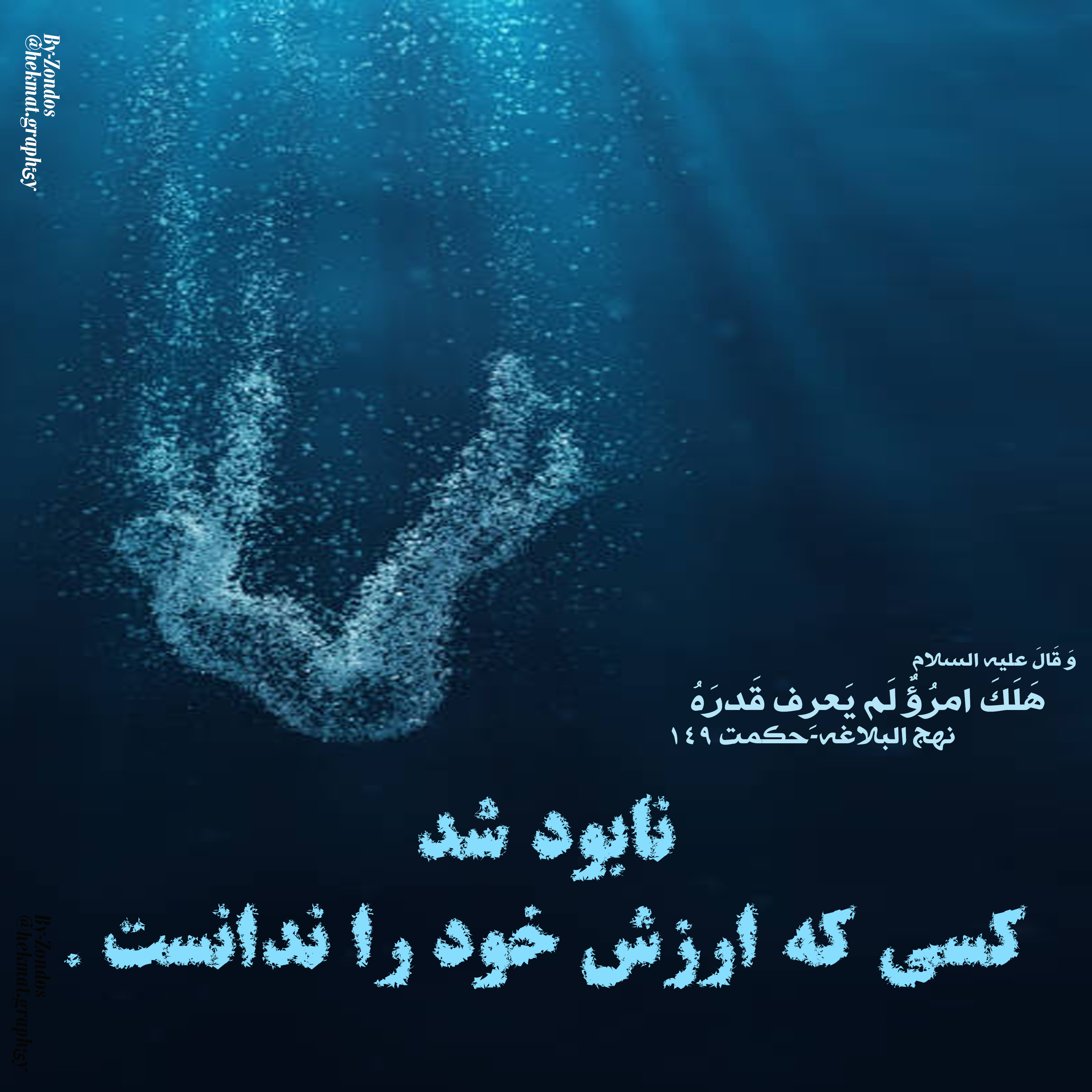

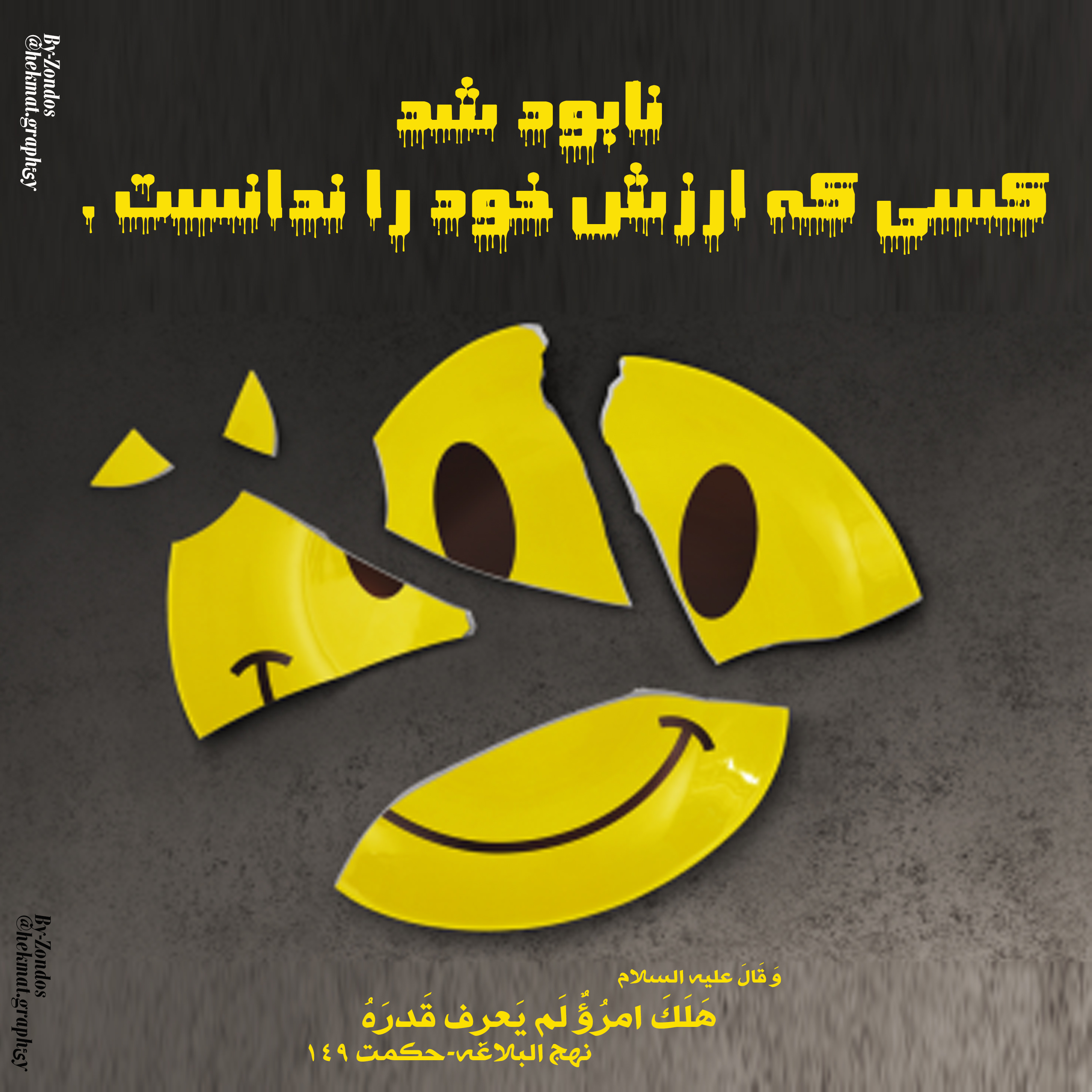

وَ قَالَ علیه السلام هَلَکَ امرُؤٌ لَم یَعرِف قَدرَهُ
و درود خدا بر او، فرمود: نابود شد کسی که ارزش خود را ندانست .
”.Imām Ali ibn Abū Tālib said: “Whoever does not know his own worth is ruined
نهج البلاغه-حکمت ۱۴۷-۲
نهج البلاغه-حکمت ۱۴۷-۲
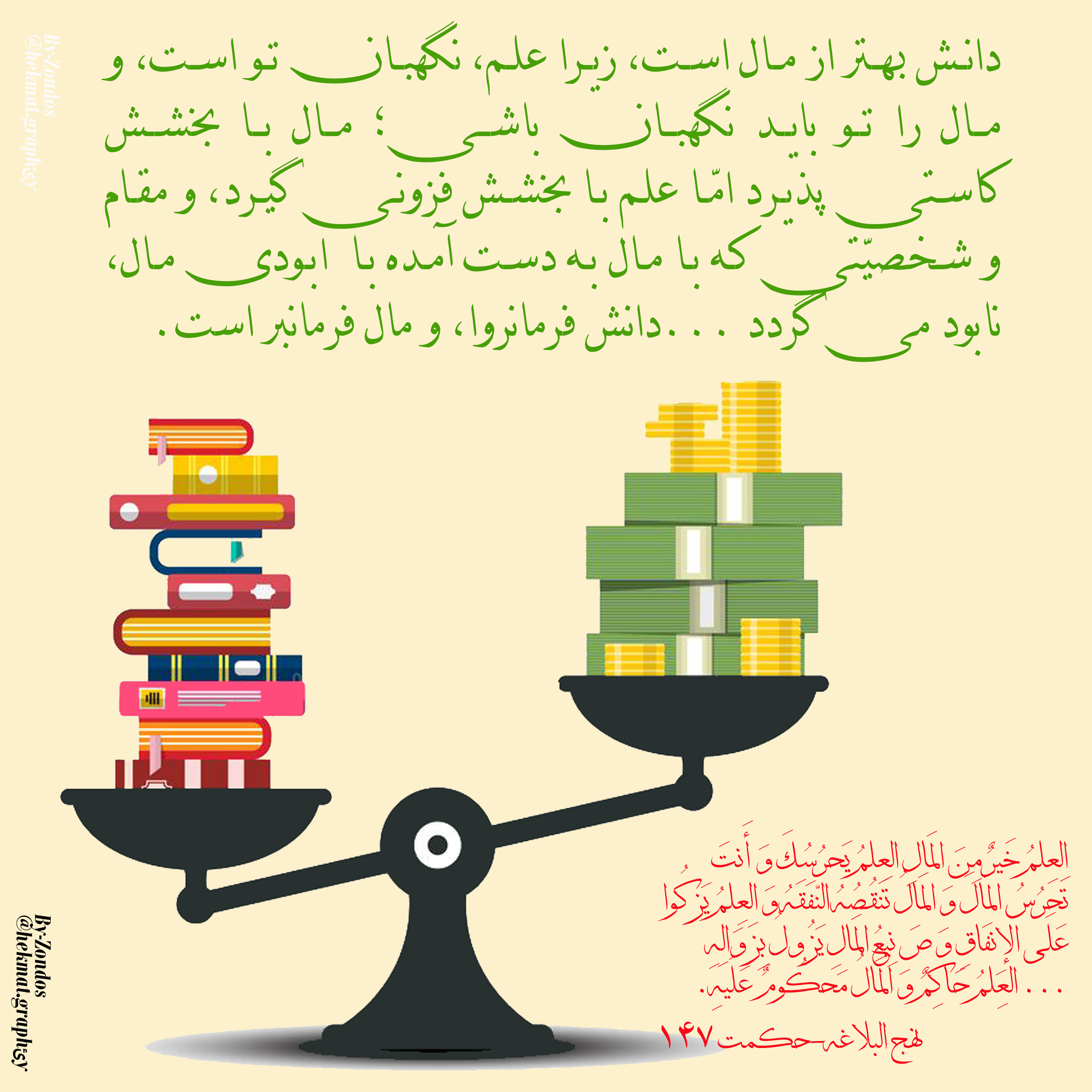
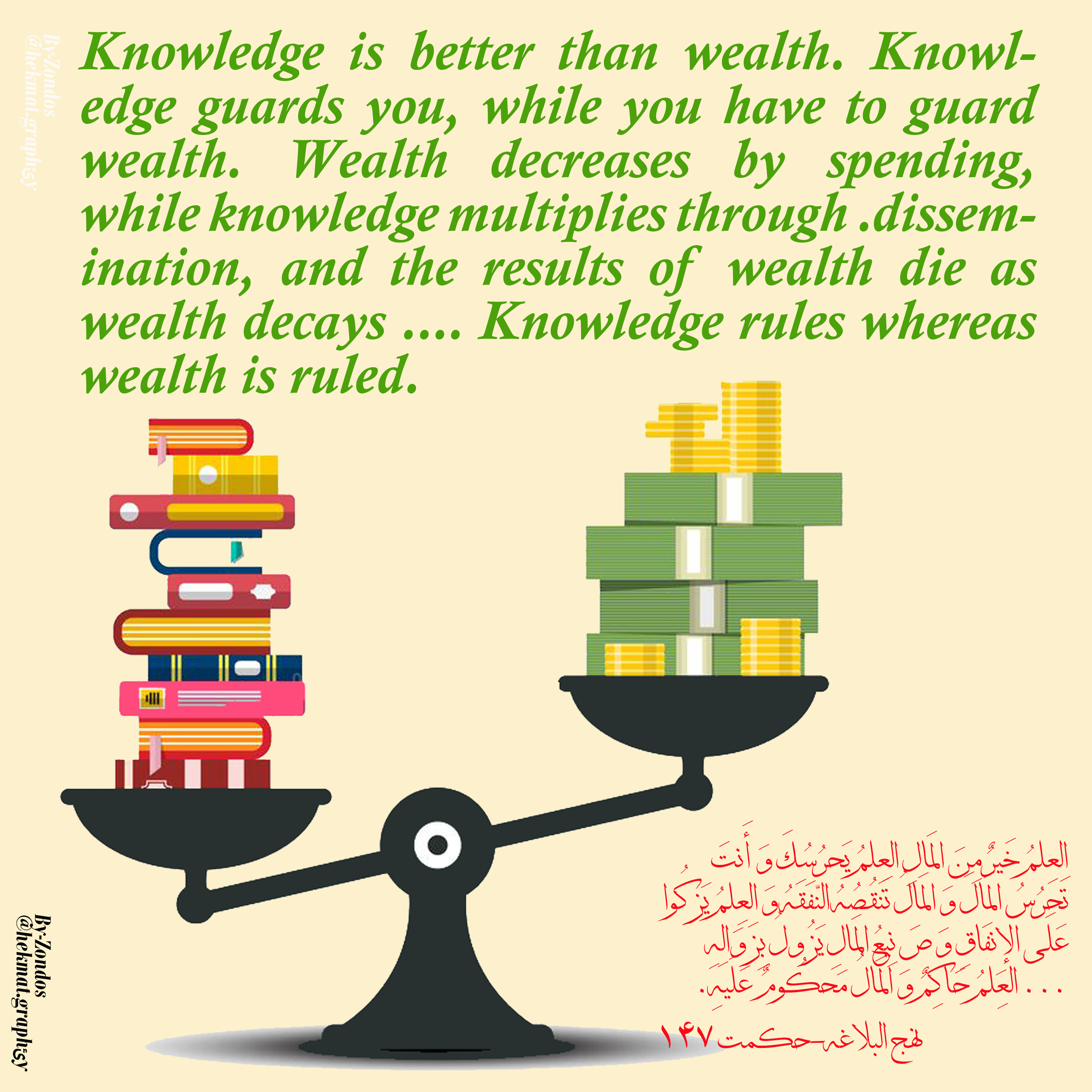
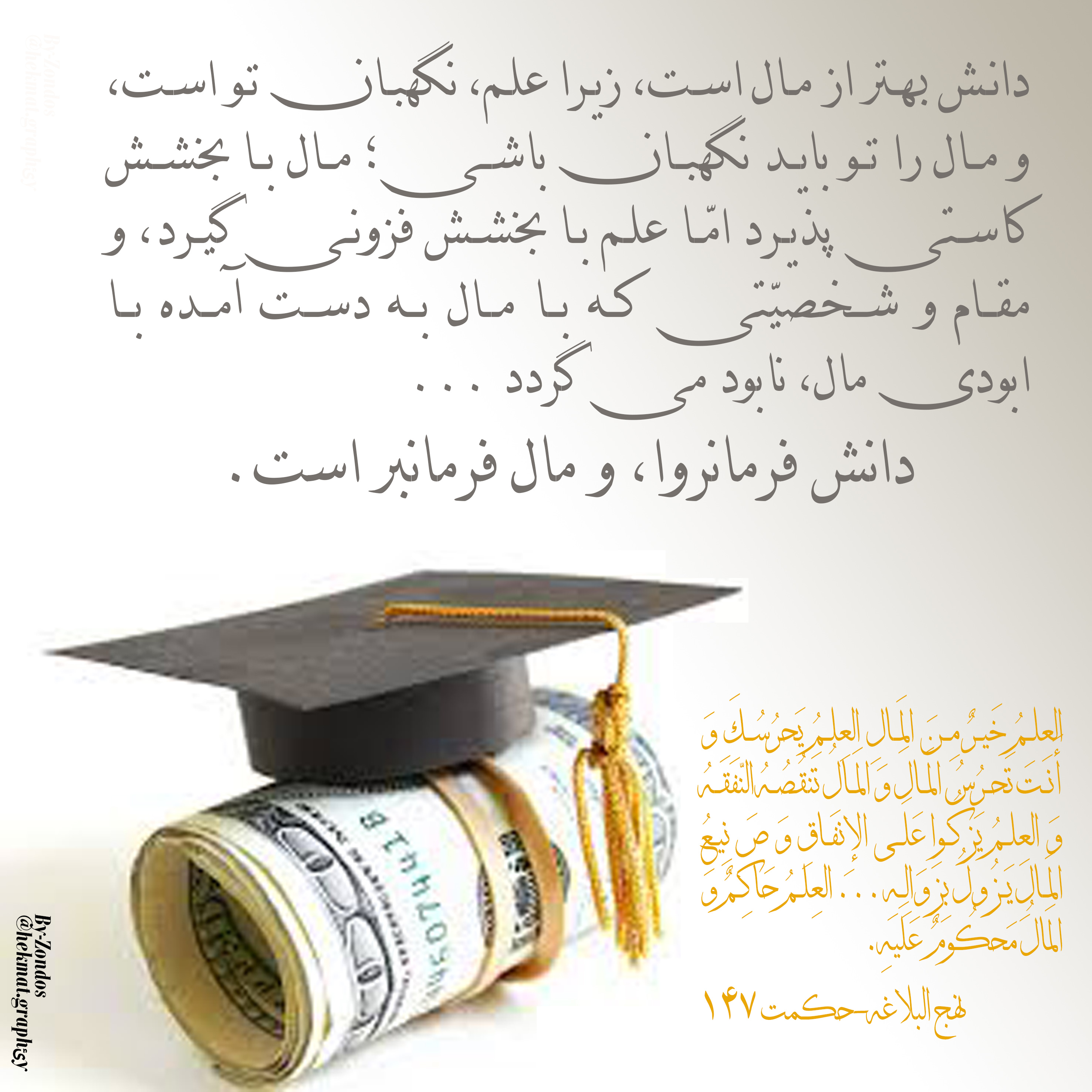
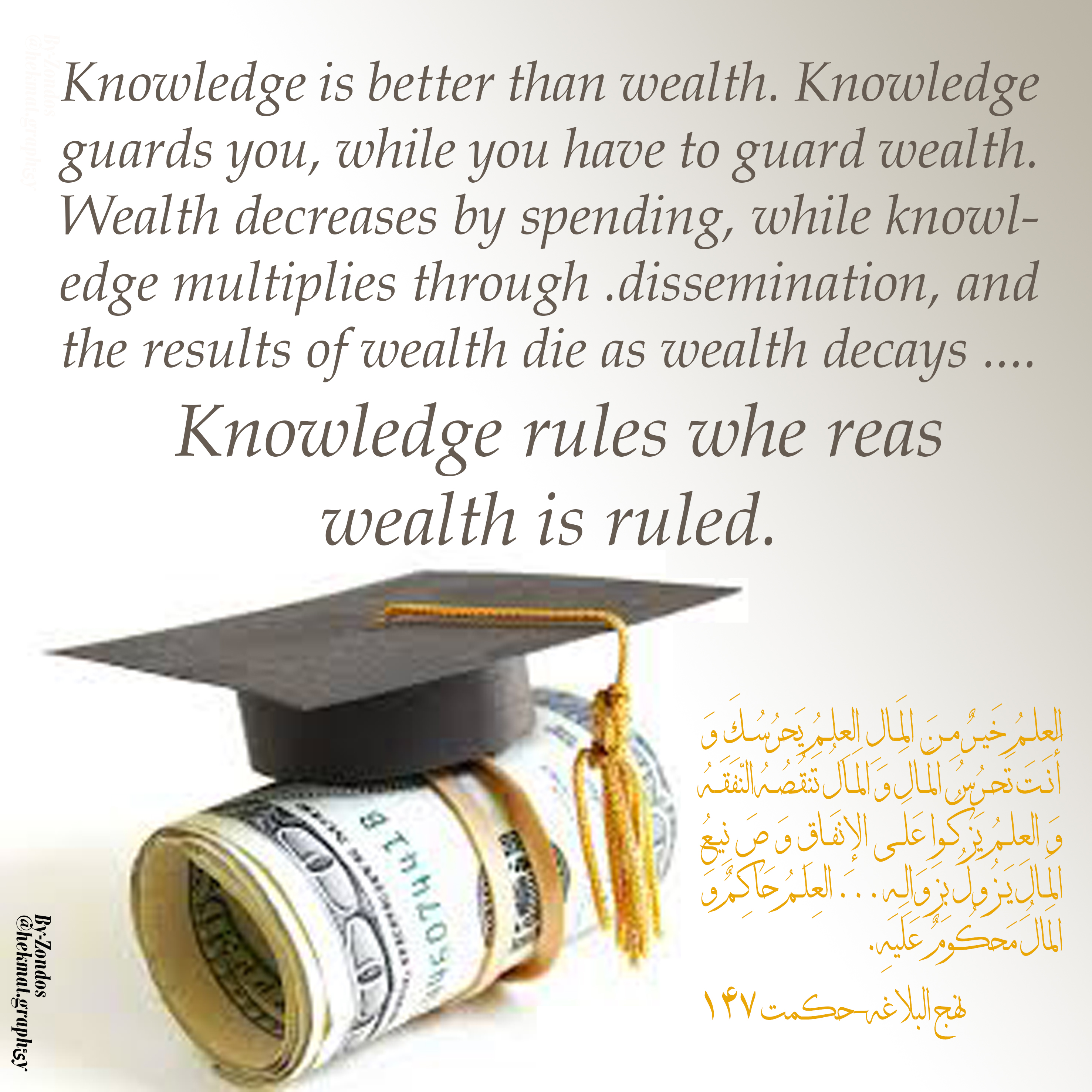


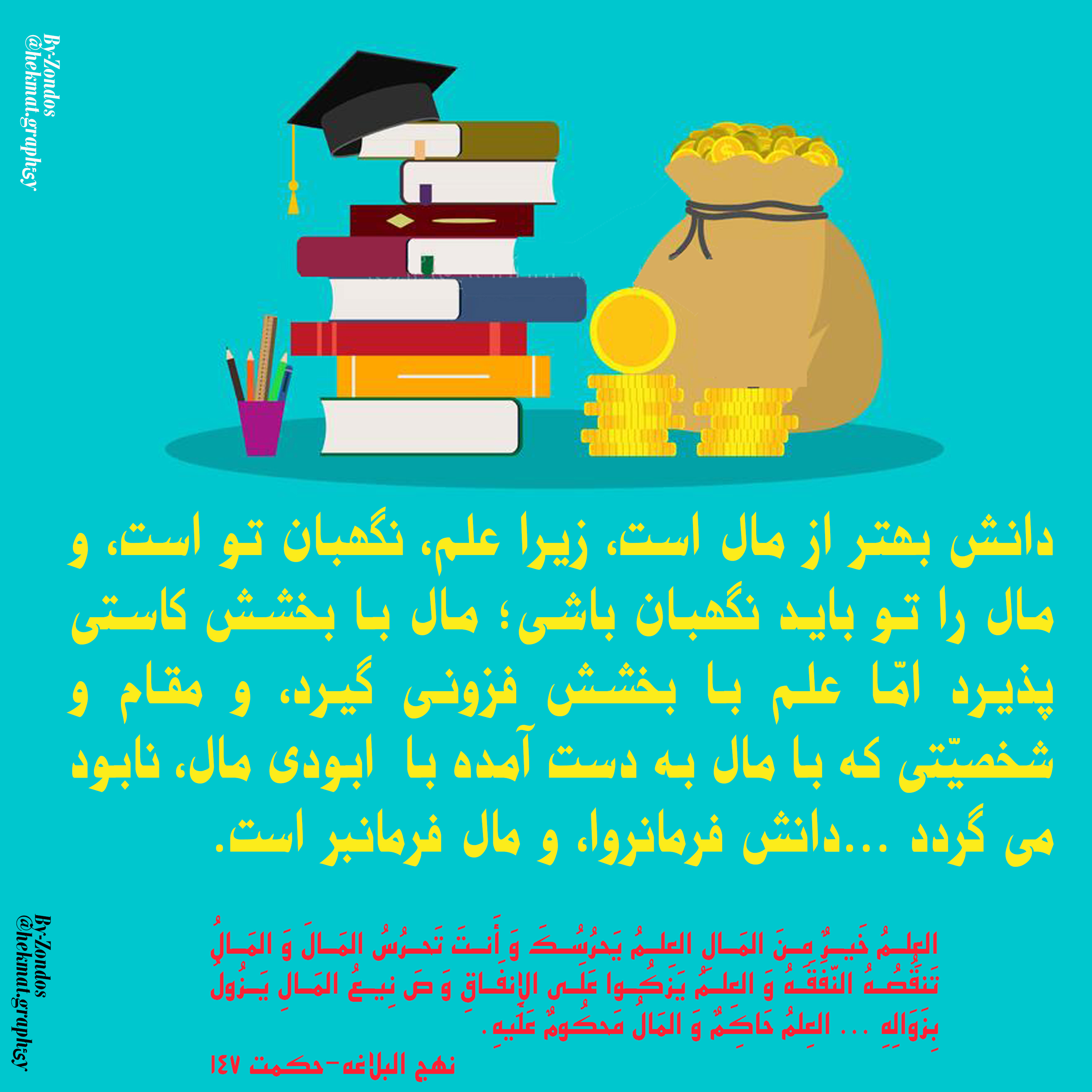

العِلمُ خَیرٌ مِنَ المَالِ العِلمُ یَحرُسُکَ وَ أَنتَ تَحرُسُ المَالَ وَ المَالُ تَنقُصُهُ النّفَقَهُ وَ العِلمُ یَزکُوا عَلَی الإِنفَاقِ وَ صَ نِیعُ المَالِ یَزُولُ بِزَوَالِهِ ... العِلمُ حَاکِمٌ وَ المَالُ مَحکُومٌ عَلَیهِ.
نهج البلاغه-حکمت ۱۴۷
دانش بهتر از مال است، زیرا علم، نگهبان تو است، و مال را تو باید نگهبان باشی؛ مال با بخشش کاستی پذیرد امّا علم با بخشش فزونی گیرد، و مقام و شخصیّتی که با مال به دست آمده با ابودی مال، نابود می گردد ...دانش فرمانروا، و مال فرمانبر است.
Knowledge is better than wealth. Knowledge guards you, while you have to guard wealth. Wealth decreases by spending, while knowledge multiplies through .dissemination, and the results of wealth die as wealth decays....Knowledge rules whereas wealth is ruled.
نهج البلاغه-حکمت ۱۴۳
نهج البلاغه-حکمت ۱۴۳


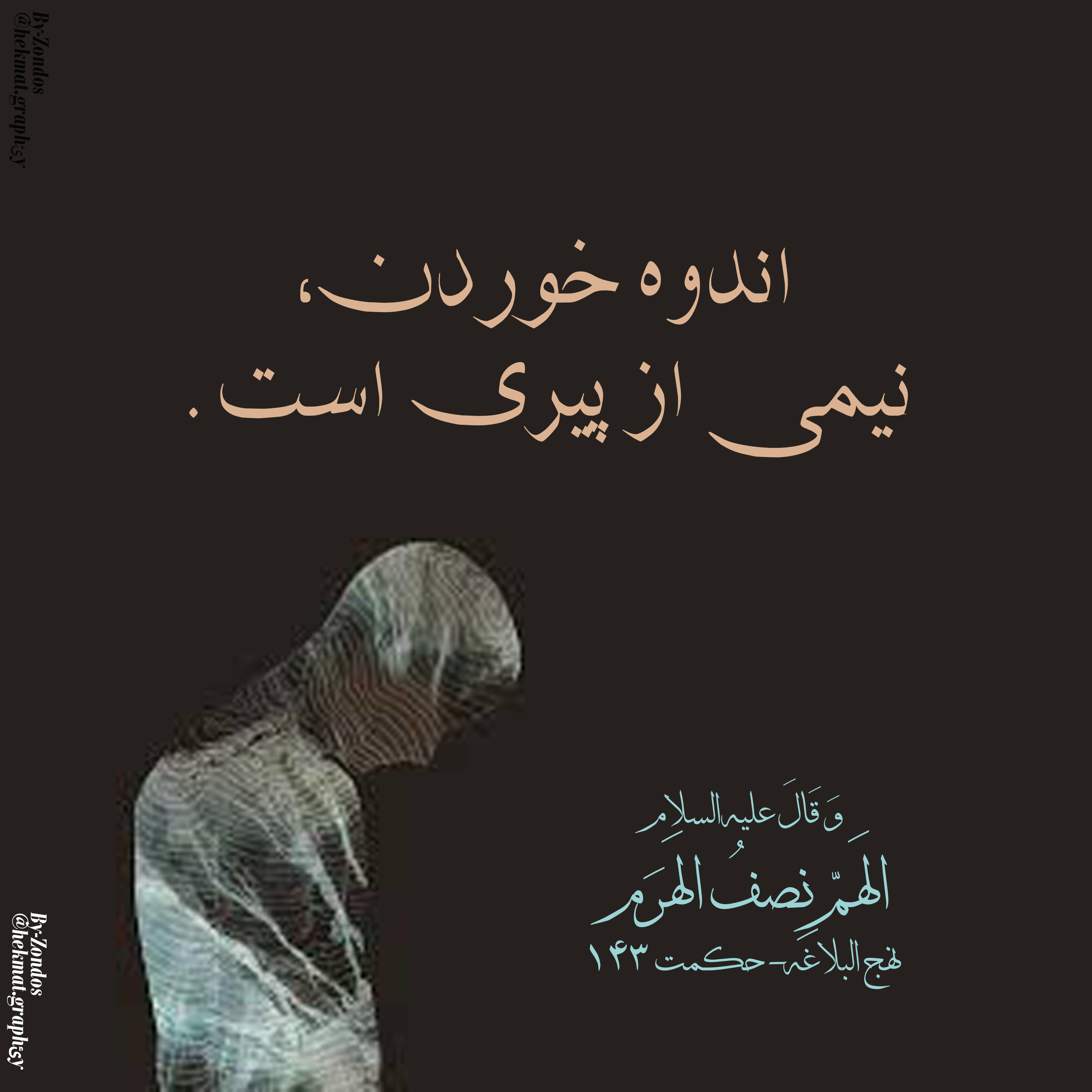


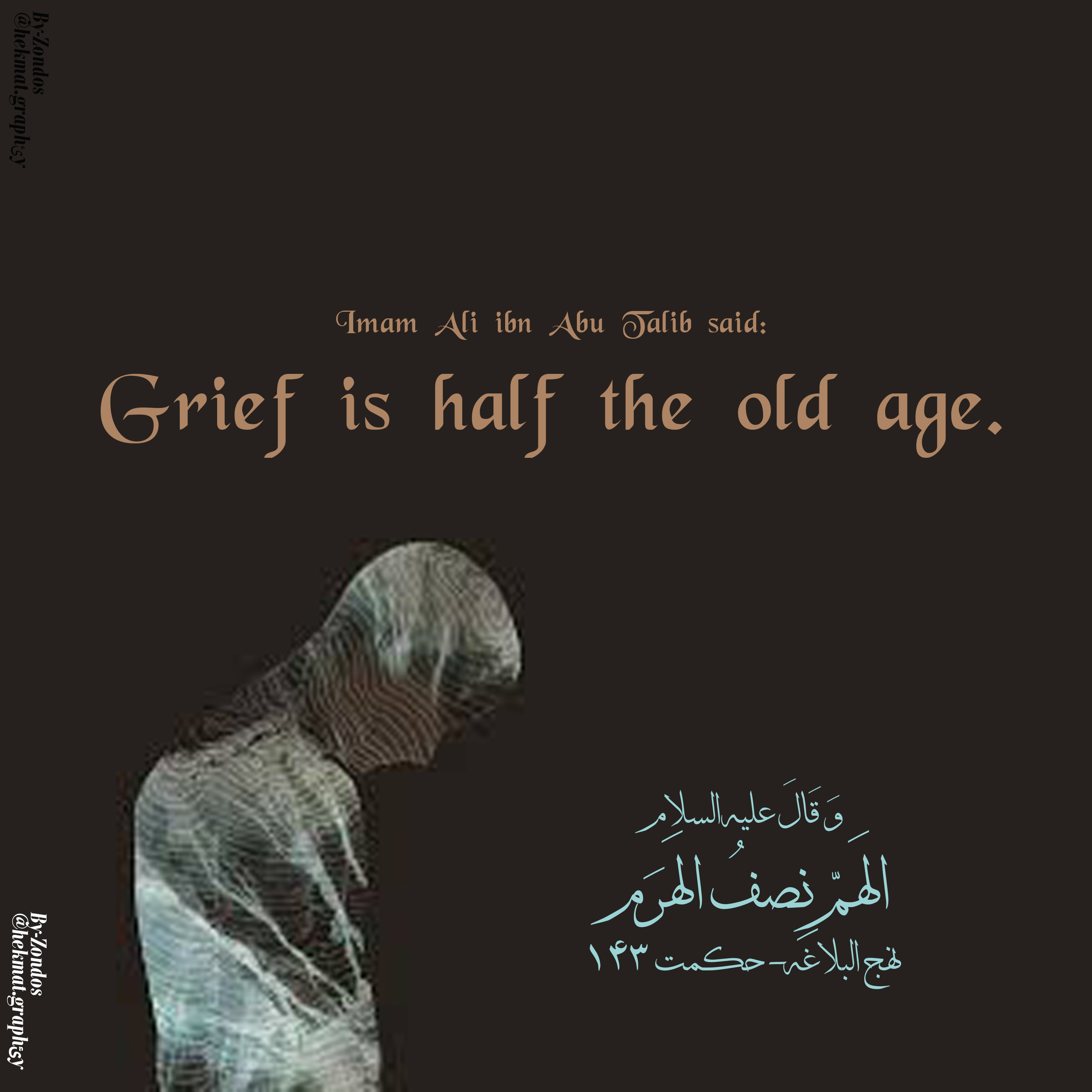
وَ قَالَ علیه السلام الهَمّ نِصفُ الهَرَمِ
و درود خدا بر او، فرمود: اندوه خوردن، نیمی از پیری است .
Imām Ali ibn Abū Tālib said: “Grief is half the old age.”{I think the other half is sickness.
نهج البلاغه حکمت 72
نهج البلاغه
حکمت 72

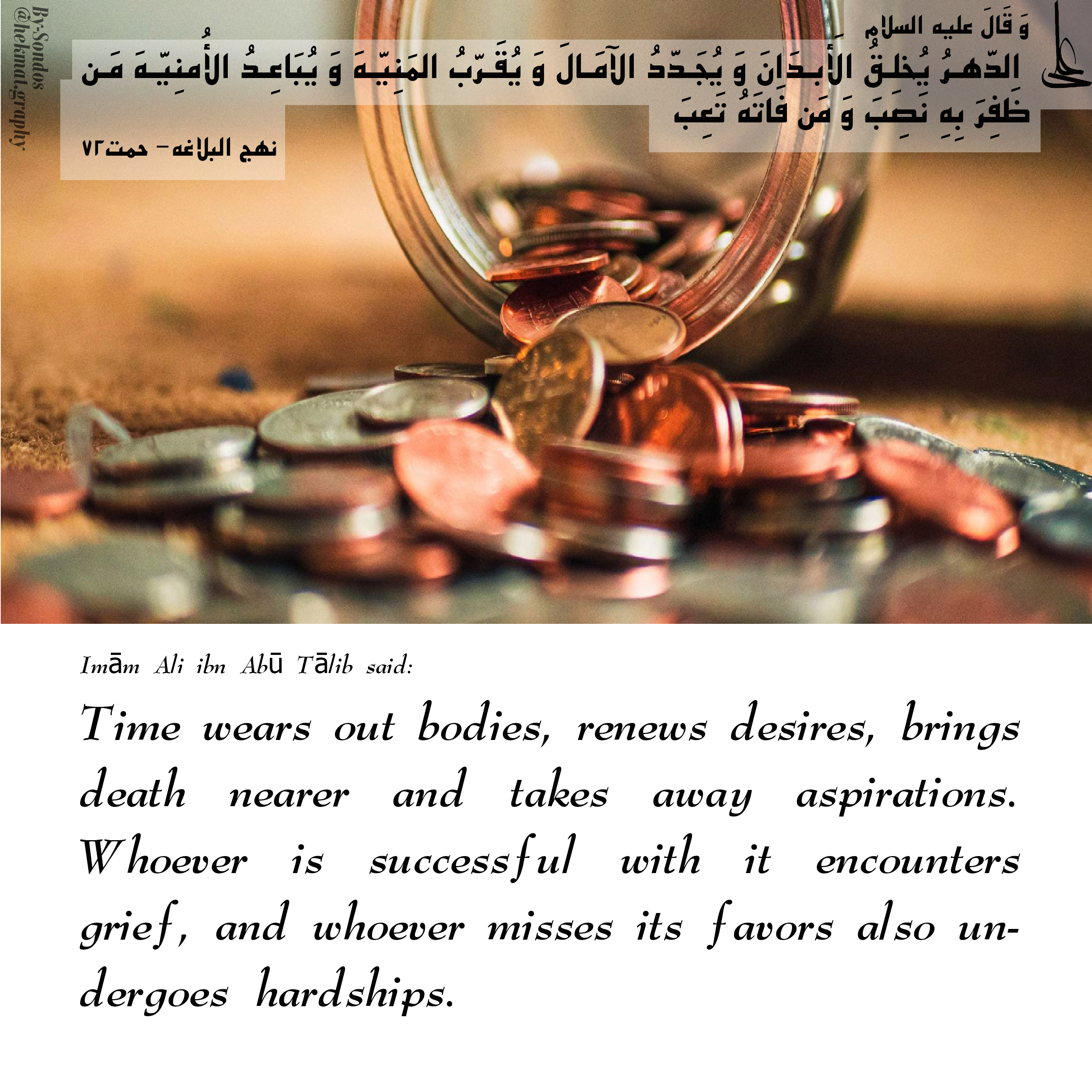
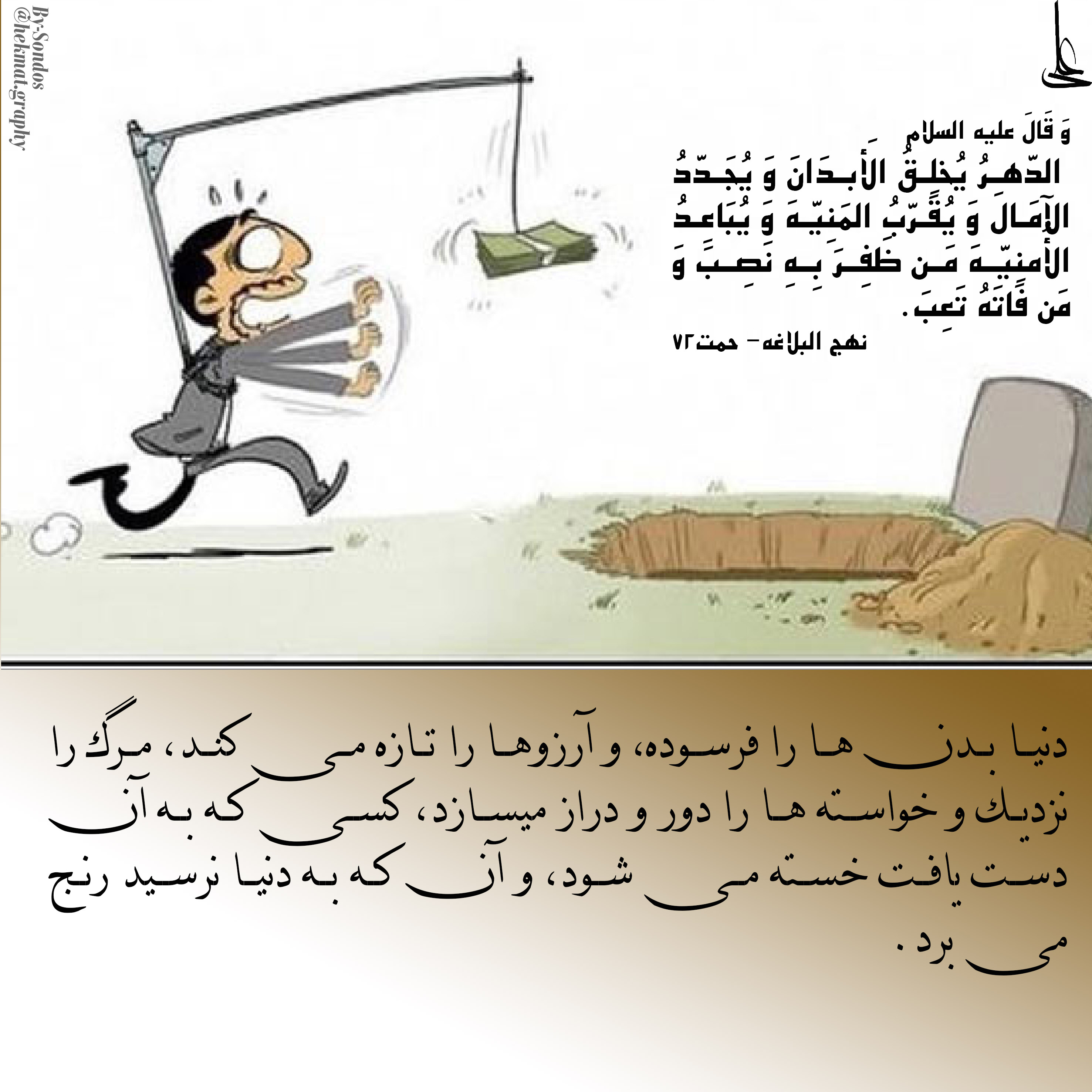
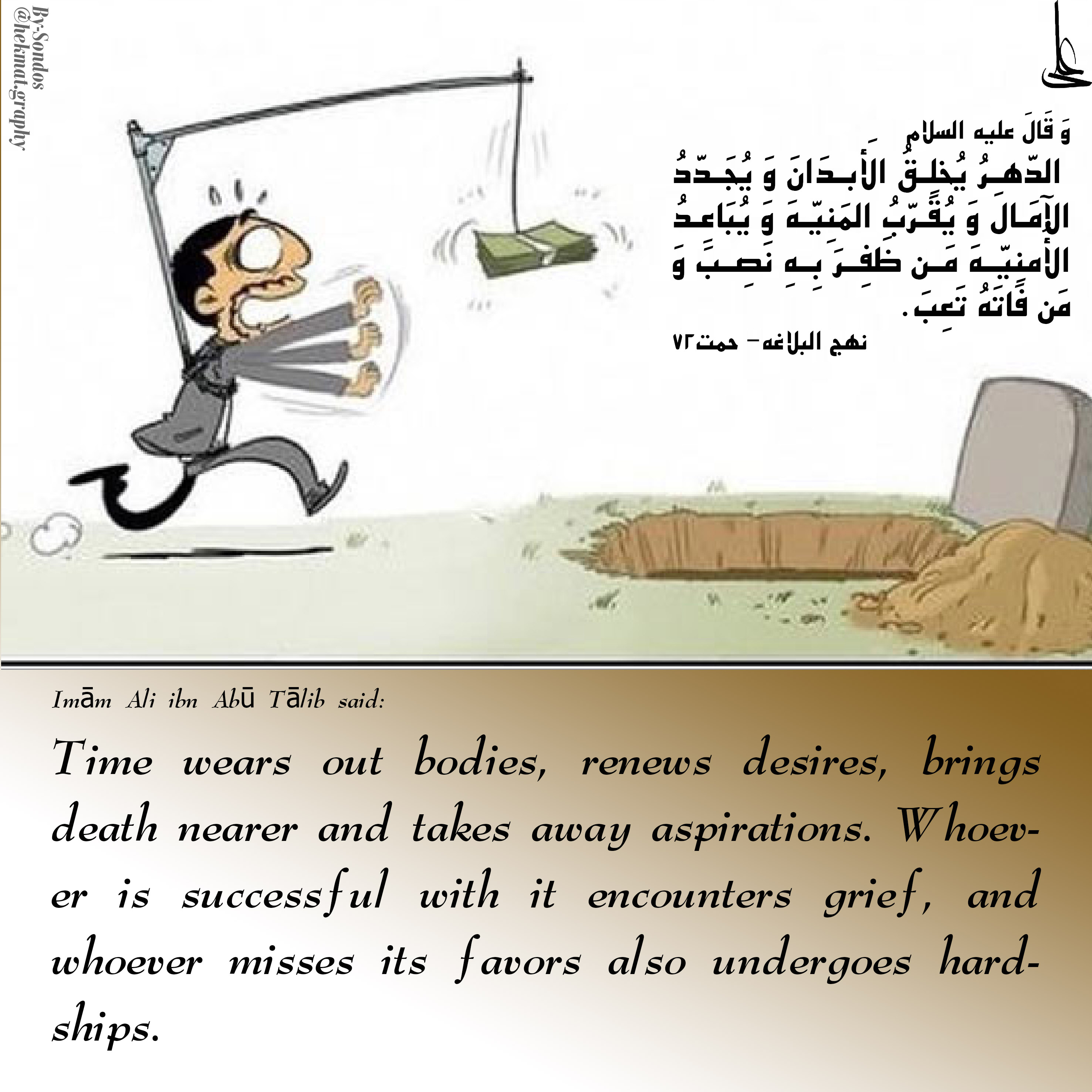


وَ قَالَ علیه السلام الدّهرُ یُخلِقُ الَأبدَانَ وَ یُجَدّدُ الآمَالَ وَ یُقَرّبُ المَنِیّهَ وَ یُبَاعِدُ الأُمنِیّهَ مَن ظَفِرَ بِهِ نَصِبَ وَ مَن فَاتَهُ تَعِبَ
درود خدا بر او، فرمود: دنیا بدن ها را فرسوده، و آرزوها را تازه می کند، مرگ را نزدیک و خواسته ها را دور و دراز می
سازد، کسی که به آن دست یافت خسته می شود، و آن که به دنیا نرسید رنج می برد
Imām Ali ibn Abū Tālib said:
Time wears out bodies, renews desires, brings death nearer and takes away aspirations. Whoever is successful with it encounters grief, and whoever misses its favors also undergoes hardships.
نهج البلاغه حکمت 65
نهج البلاغه
حکمت 65


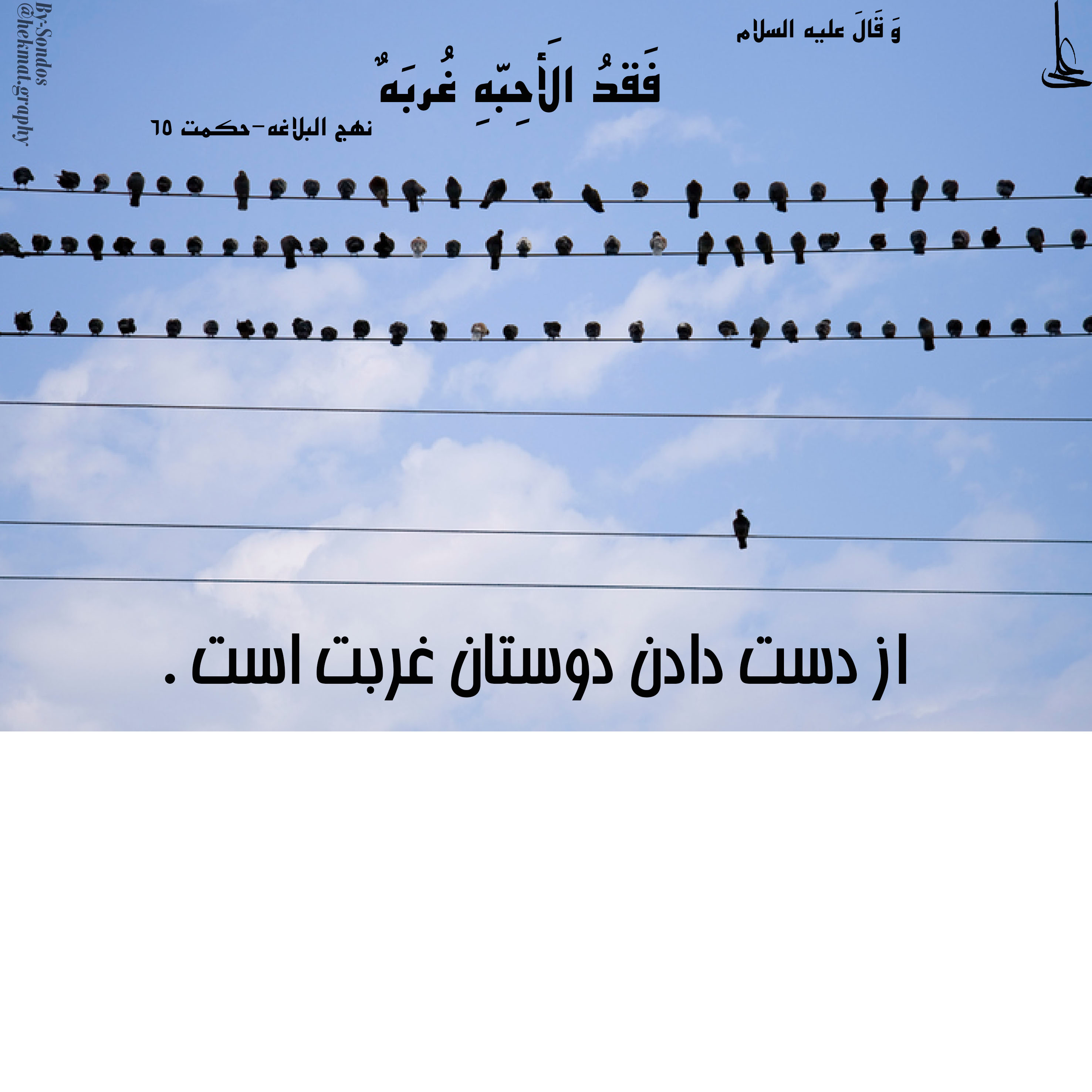

وَ قَالَ علیه السلام فَقدُ الَأحِبّهِ غُربَهٌ
و درود خدا بر او، فرمود: از دست دادن دوستان غربت است
Imam Ali ibn Abu Talib said :
The loss of friends is estrangement.
نهج البلاغه حکمت 60
نهج البلاغه
حکمت 60
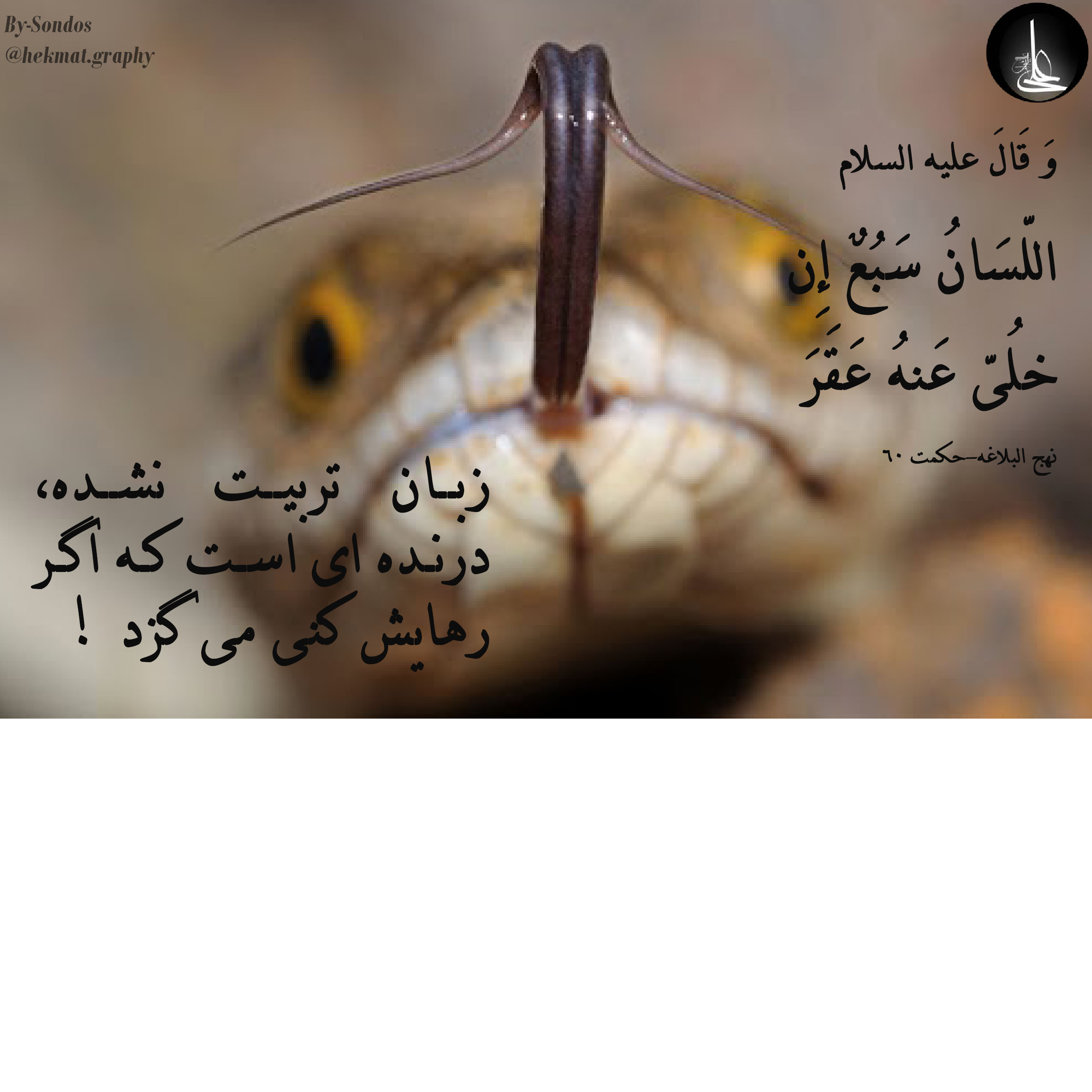

وَ قَالَ علیه السلام اللّسَانُ سَبُعٌ إِن خلُیّ عَنهُ عَقَرَ
و درود خدا بر او، فرمود: زبان تربیت نشده، درنده ای است که اگر رهایش کنی می گزد !
”.Imām Ali ibn Abū Tālib said: “The tongue is a beast; when it is let loose, it devours
? what is shia? What are the differences between Shia and Sunni Muslims
?what is shia

Shia Islam or Shi'ism is one of the two main branches of Islam. It holds that the Islamic prophet Muhammad designated Ali ibn Abi Talib as his successor and the Imam (leader) after him, most notably at the event of Ghadir Khumm, but was prevented from the caliphate as a result of the incident of Saqifah. This view primarily contrasts with that of Sunni Islam, whose adherents believe that Muhammad did not appoint a successor and consider Abu Bakr, who was appointed caliph by a group of Muslims at Saqifah, to be the first rightful caliph after Muhammad. A person observing Shia Islam is called a Shi'i.
Shia Islam is based on Muhammad's hadith (Ghadir Khumm). Shia consider Ali to have been divinely appointed as the successor to Muhammad, and as the first Imam. The Shia also extend this Imammah to Muhammad's family, the Ahl al-Bayt ("the people/family of the House"), and some individuals among his descendants, known as Imams, who they believe possess special spiritual and political authority over the community, infallibility and other divinely ordained traits. Although there are many Shia subsects, modern Shia Islam has been divided into two main groupings: Twelvers and Ismailis, with Twelver Shia being the largest and most influential group among Shia.
Shia Islam is the second largest branch of Islam: as of the late 2000s, Shia Muslims constituted 10–15% of all Muslims. Twelver Shia is the largest branch of Shia Islam, with 2012 estimates saying that 85% of Shias were Twelvers.

Shia Muslims believe that just as a prophet is appointed by God alone, only God has the prerogative to appoint the successor to his prophet. They believe God chose Ali to be Muhammad's successor, infallible, the first caliph (khalifah, head of state) of Islam. The Shia believe that Muhammad designated Ali as his successor by God's command (Eid Al Ghadir).
Ali was Muhammad's first-cousin and closest living male relative as well as his son-in-law, having married Muhammad's daughter Fatimah.
What are the differences between Shia and Sunni Muslims

The distinction between Shia and Sunni Islam began after the death of Islam's founder The Prophet Muhammad (PBUH&HP). Sunni Muslims believe that the Prophet Muhammad (PBUH&HP) did not name a successor to lead Muslims after his death while Shia Muslims deeply believe that the Prophet (PBUH&HP) Introduced Imam Ali (PBUH) for many times as his successor. Including in Qadeer Khom where the Prophet raised Imam Ali's hand then introduced him as the Imam for all Muslims and commanded Muslims (more than one hundred thousand Muslim) there to give Imam Ali allegiance.
As a result, Sunnis believe that people after the Prophet death elected a new leader. The first four caliphs, began the Sunni tradition, though no global Sunni leader has been in place since the fall of the Ottoman Empire.
In contrast, Shia Muslims followed Imam Ali ibn Abi-Talib (PBUH), the son-in-law of the Prophet Muhammad (PBUH&HP), as the rightful successor of Islam. While Sunni movement has developed into many sub-groups, Shia Muslims emphasize the special spiritual and political leadership of Imams (Muslim religious leaders) to Muslim nations.
In terms of size, Sunni Muslims are the largest group of adherents within Islam, with close to seventy percent of Muslims coming from Sunni heritage. However, in certain countries, including Azerbaijan, Bahrain, Yemen, Iran, and Iraq, Shia Islam is considered the majority groupand in many of other Islamic countries like Saudi Arabia, Afghanistan, Pakistan, Syria and many other countries are minority.
Spiritually, both groups practice the Five Pillars of Islam. All Muslims have to pray five prayers that Sunni Muslims pray these five prayers in five times each day (separately), while Shia Muslims pray them in three official times (together). Further, All of Shia and few of Sunni Scolars and Muslims accept the belief in the Twelfth Imam who has already been born but is hidden and will play a major role with his return in the last days.
Each group also has other unique traditions as part of its religious customs. For example, Shia Muslims observe the Day of Ashura, a day to commemorate the martyrdom of Imam Husayn ibn Ali (PBUH), grandson of the Prophet Muhammad (PBUH&HP).
Sunni Muslims follow the many Hadith that are considered authenticated sayings of the Prophet Muhammad (PBUH&HP) to help interpret the Glorious Qur'an. Shia Muslims do not accept the authority of the six major Hadith collections of Sunni Islam but instead follow the Hadiths that is narrated from infallible twelve Imams.
In a religion as large as Islam, many additional subgroups also exist within Sunni and Shia Islam. These differences note some of the major distinctions. Yet all Muslims continue to follow Allah as the one true God, the Five Pillars of Islam, and share many important spiritual and cultural customs related to their religions.
Interestingly, both Sunni and Shia Islam accept the Muslim teaching that Jesus (PBUH) is one of many prophets in Islam. Yet the Bible (composed of Old and New Testaments) is the book in which many of the historic teachings of Moses and Jesus (PBUTH) can be found.

en.al-shia.org


